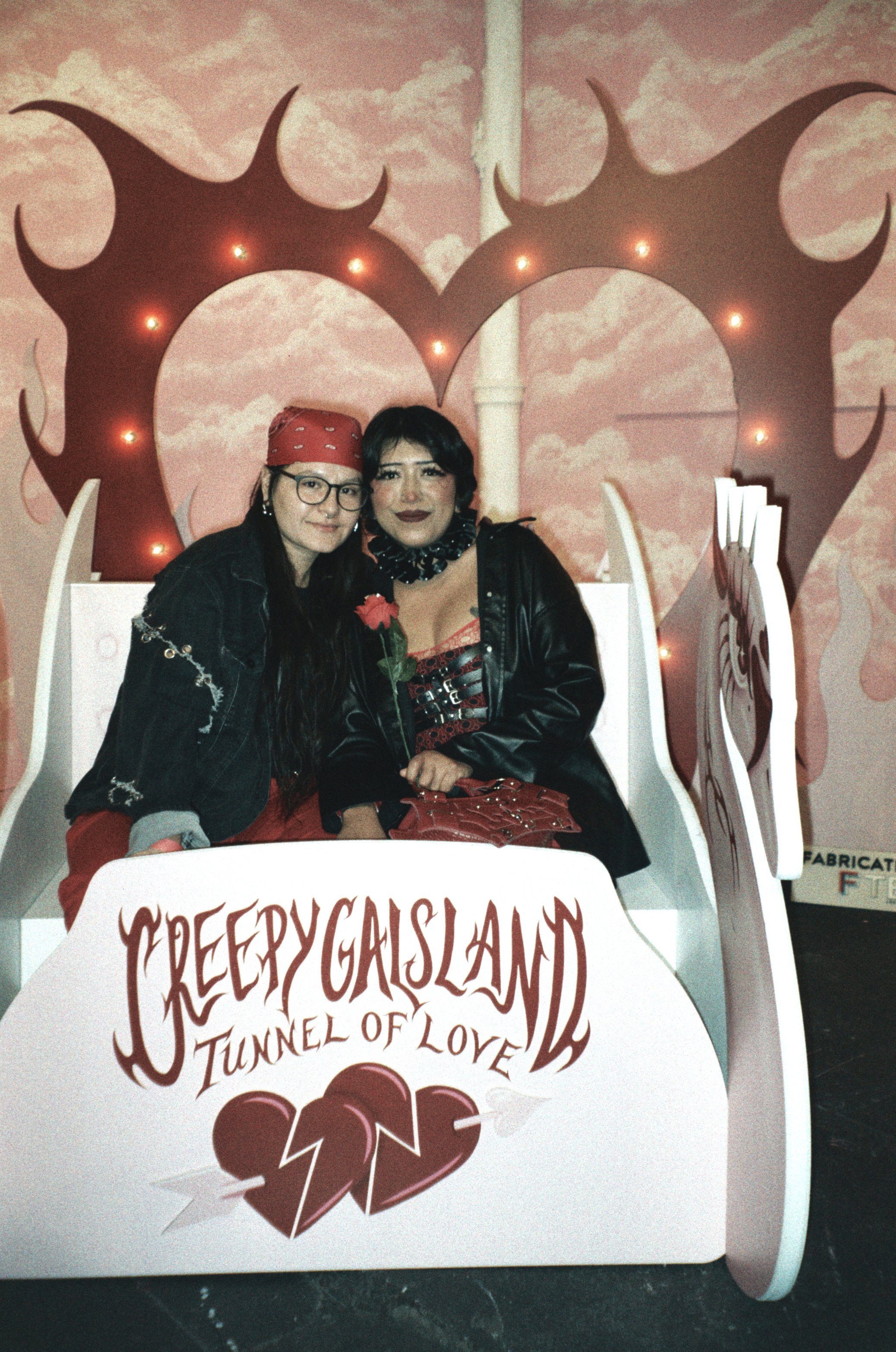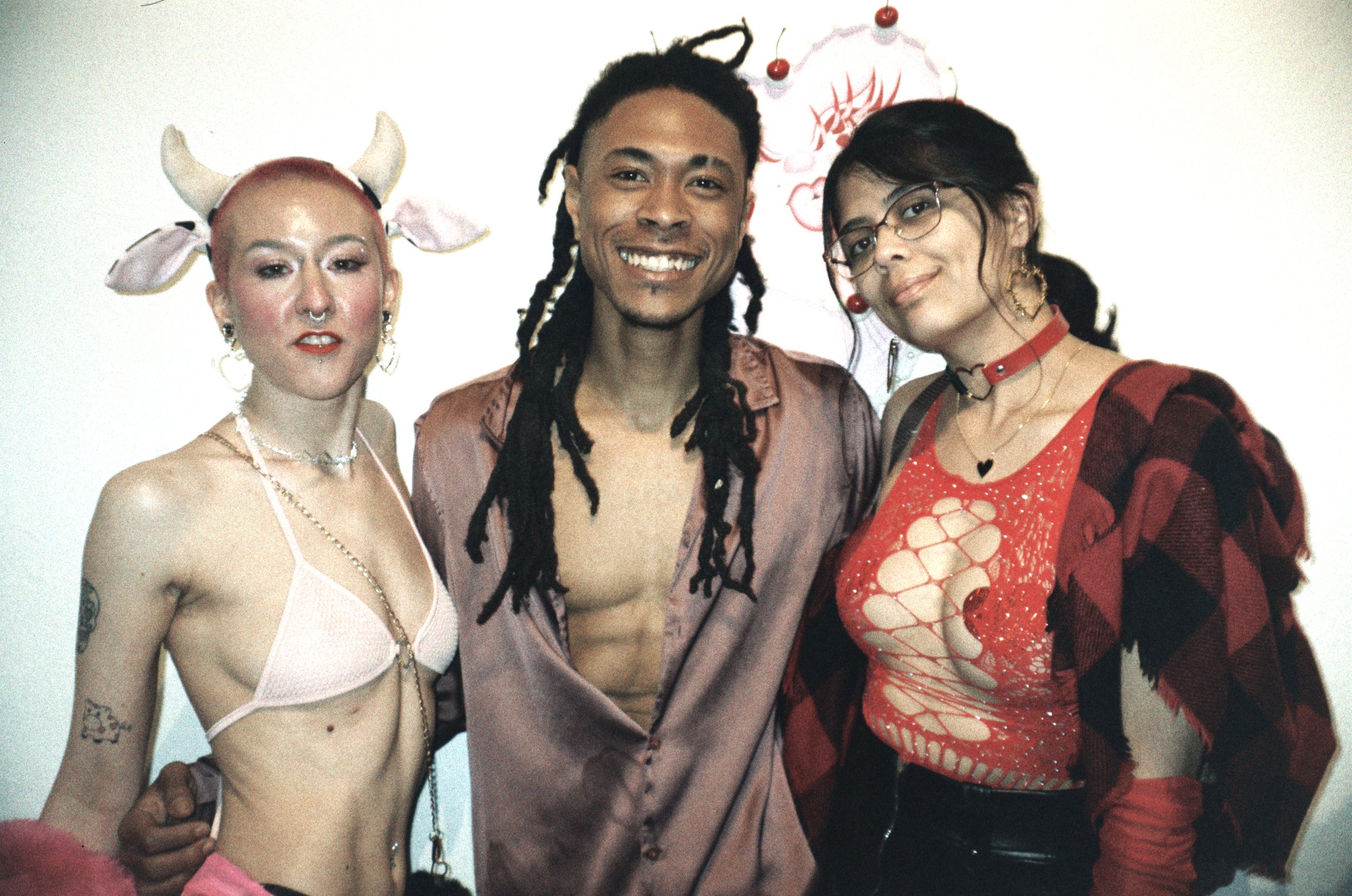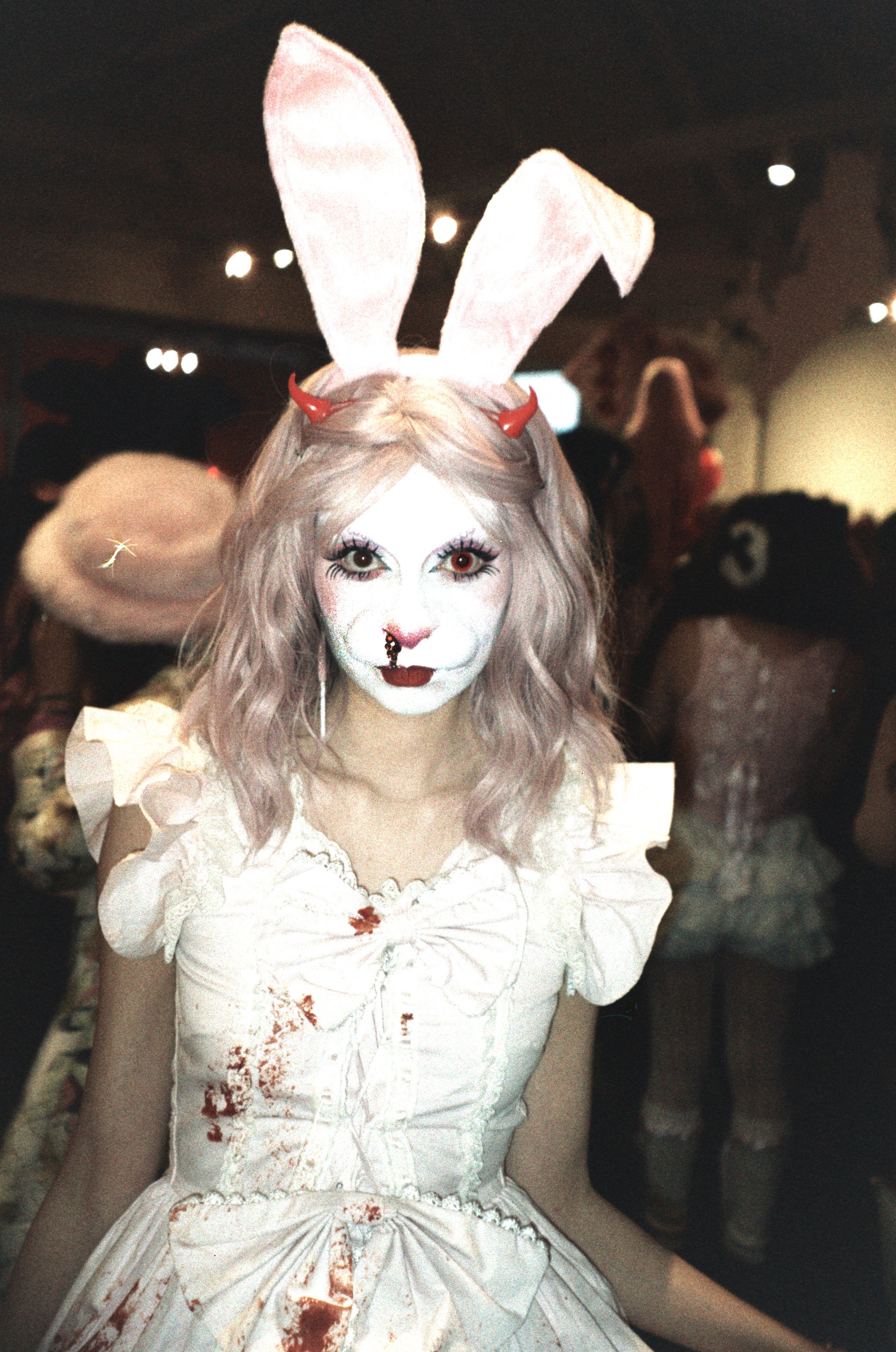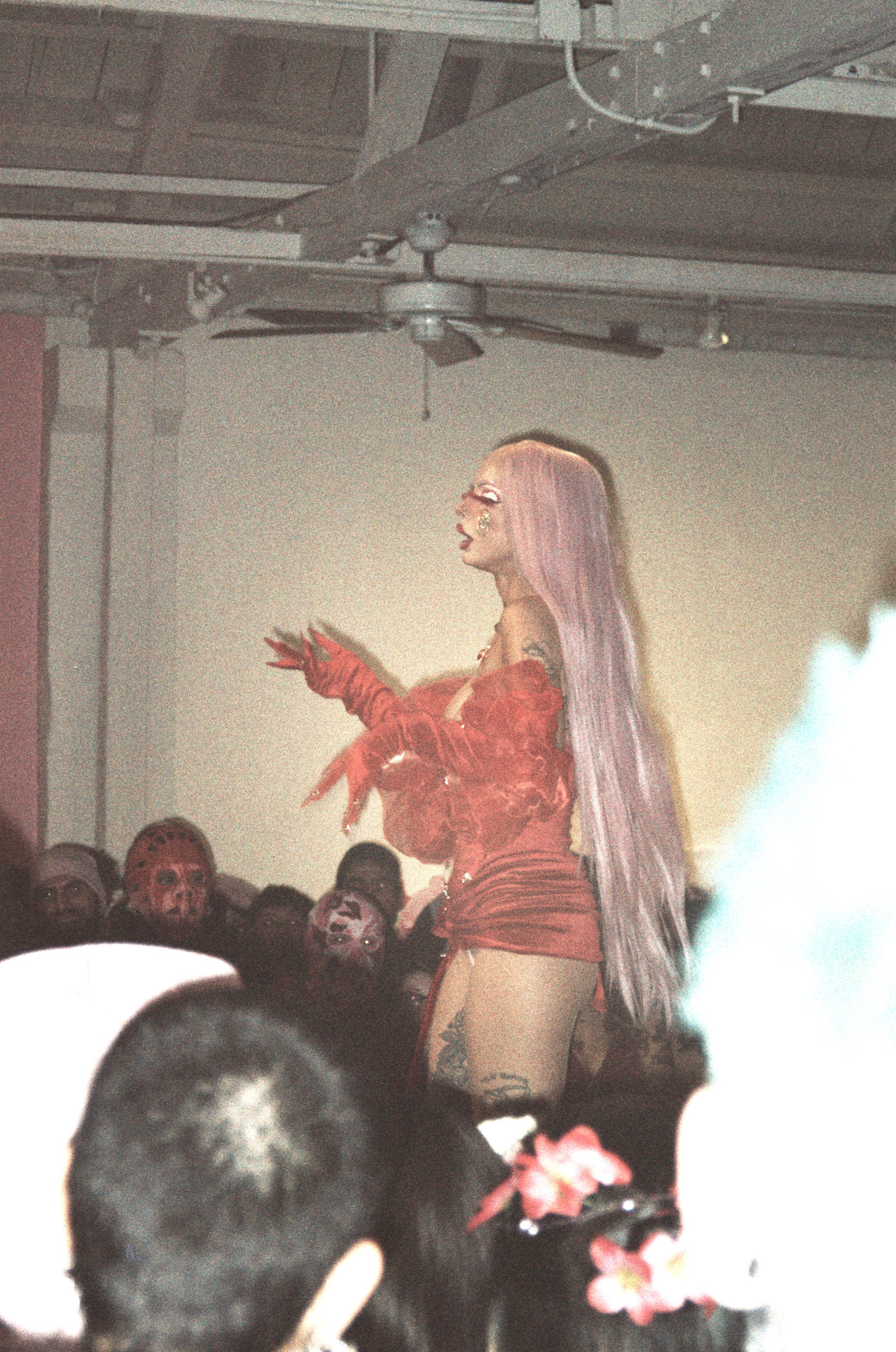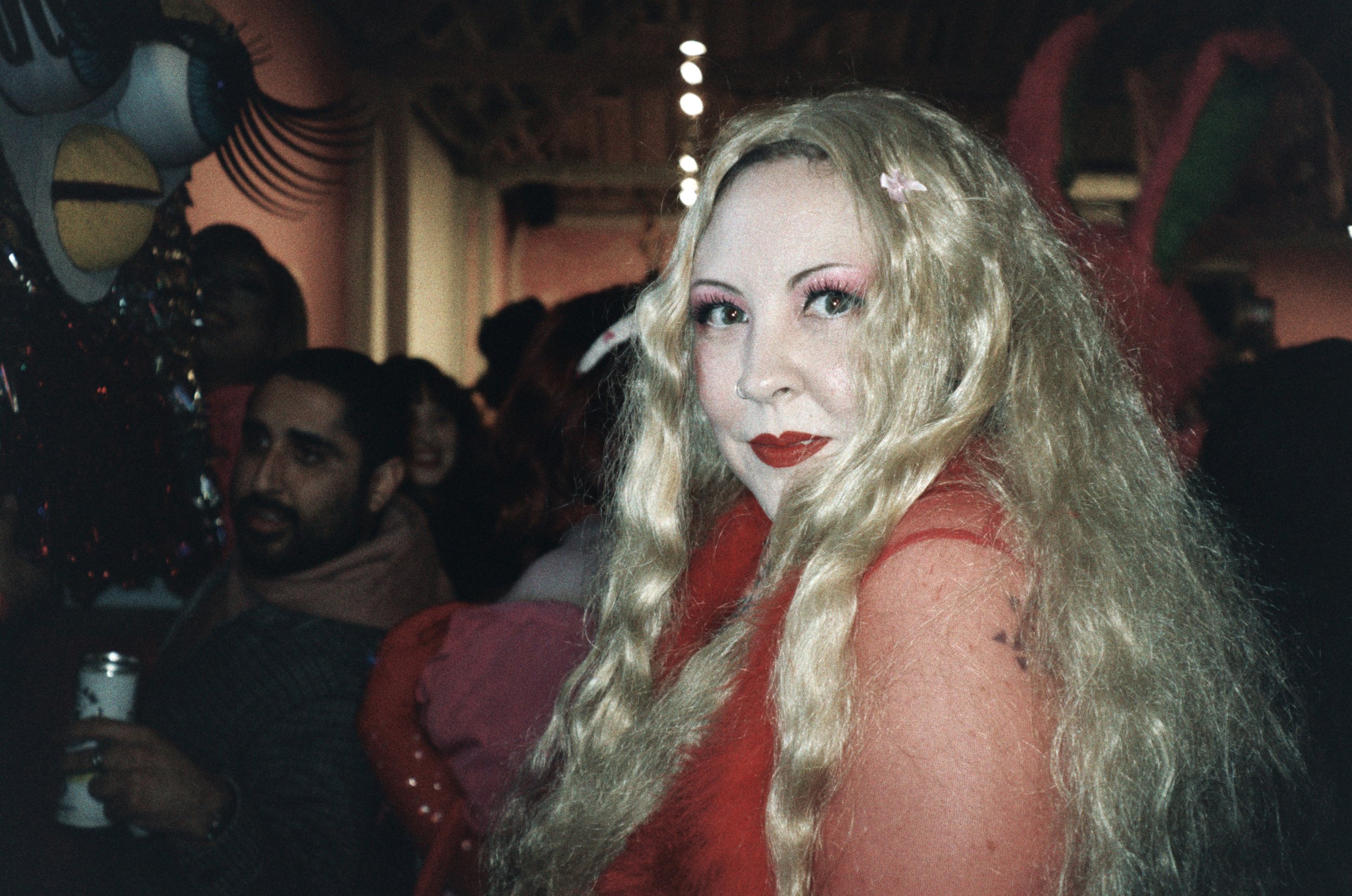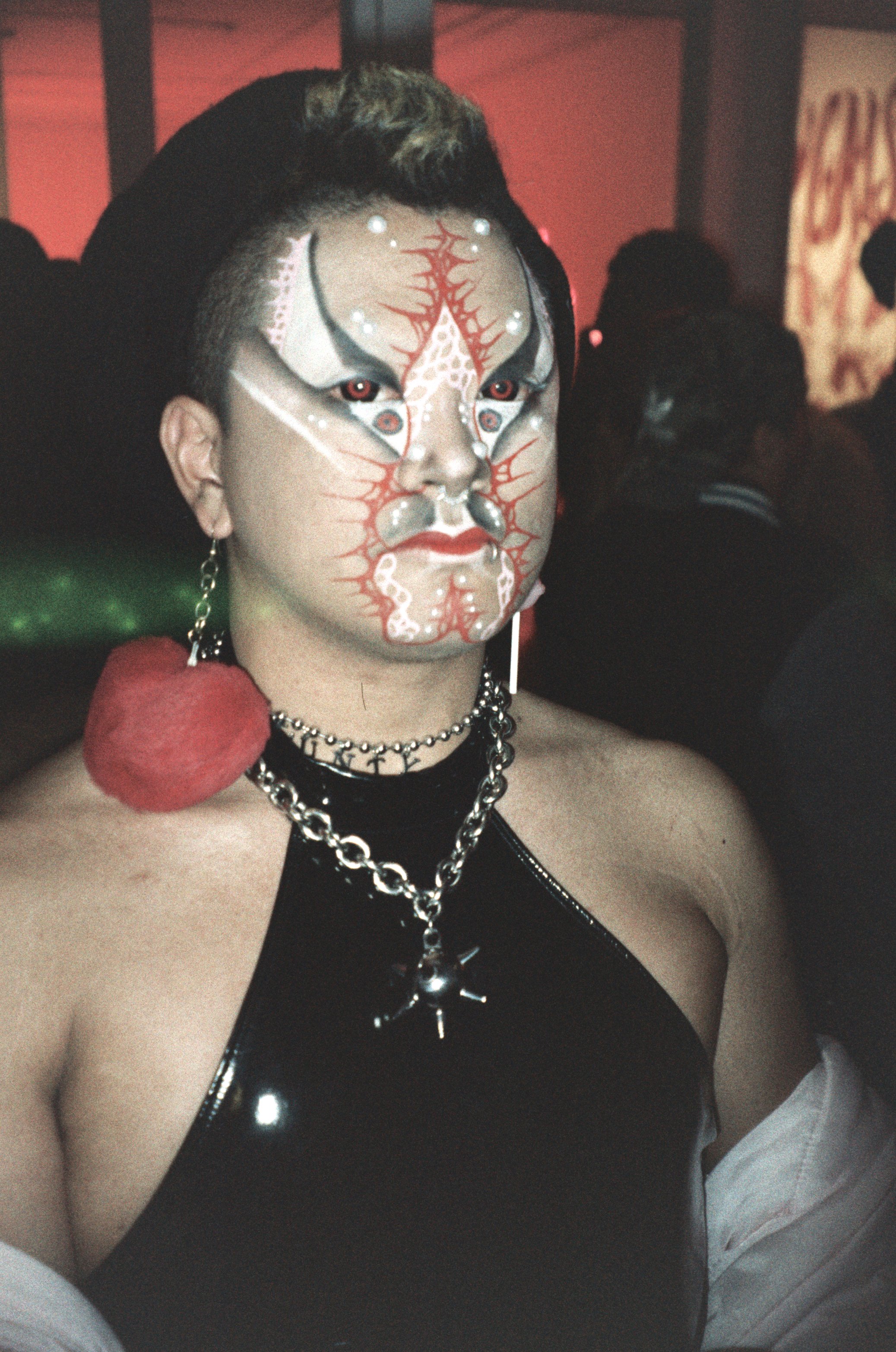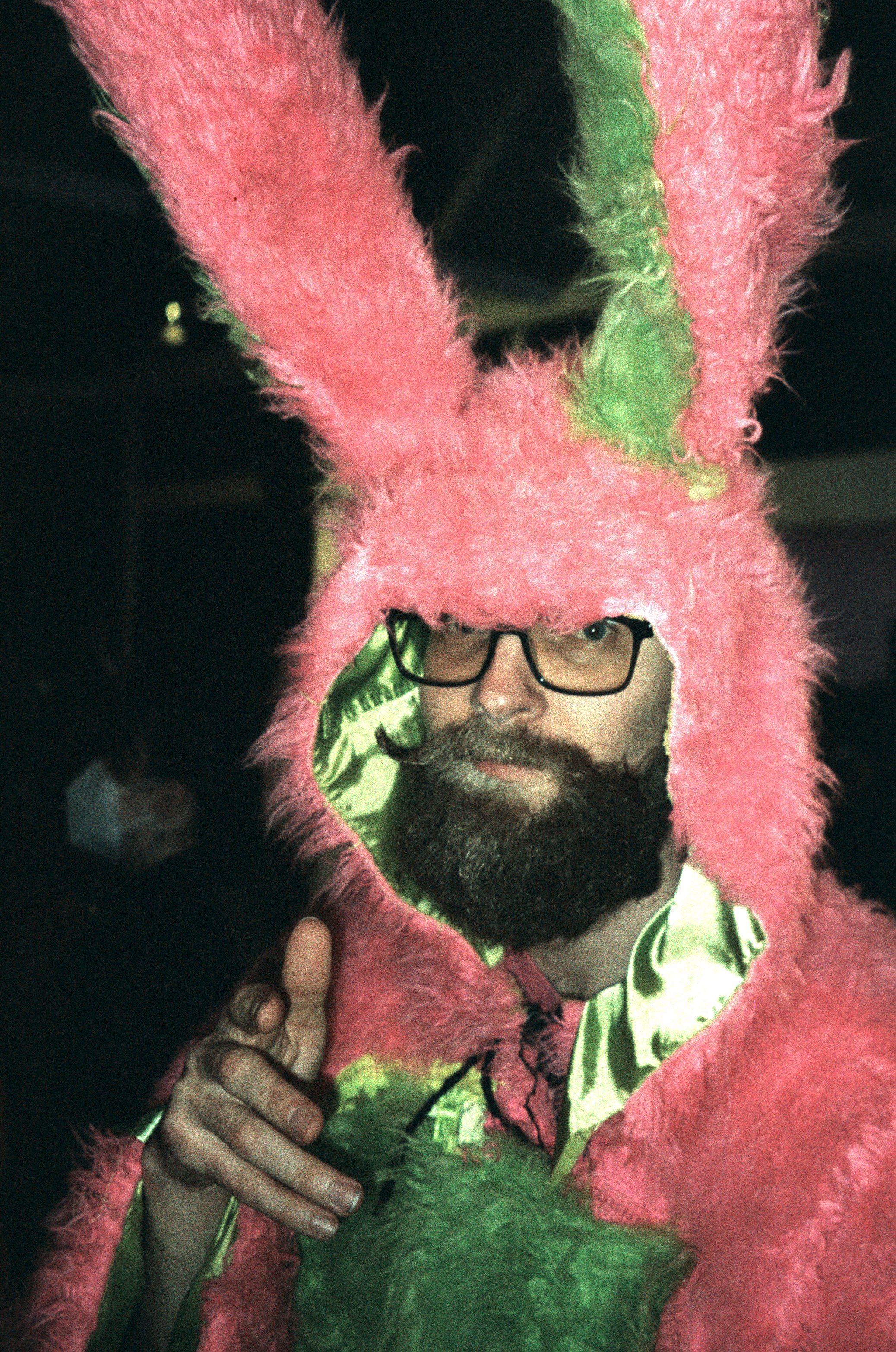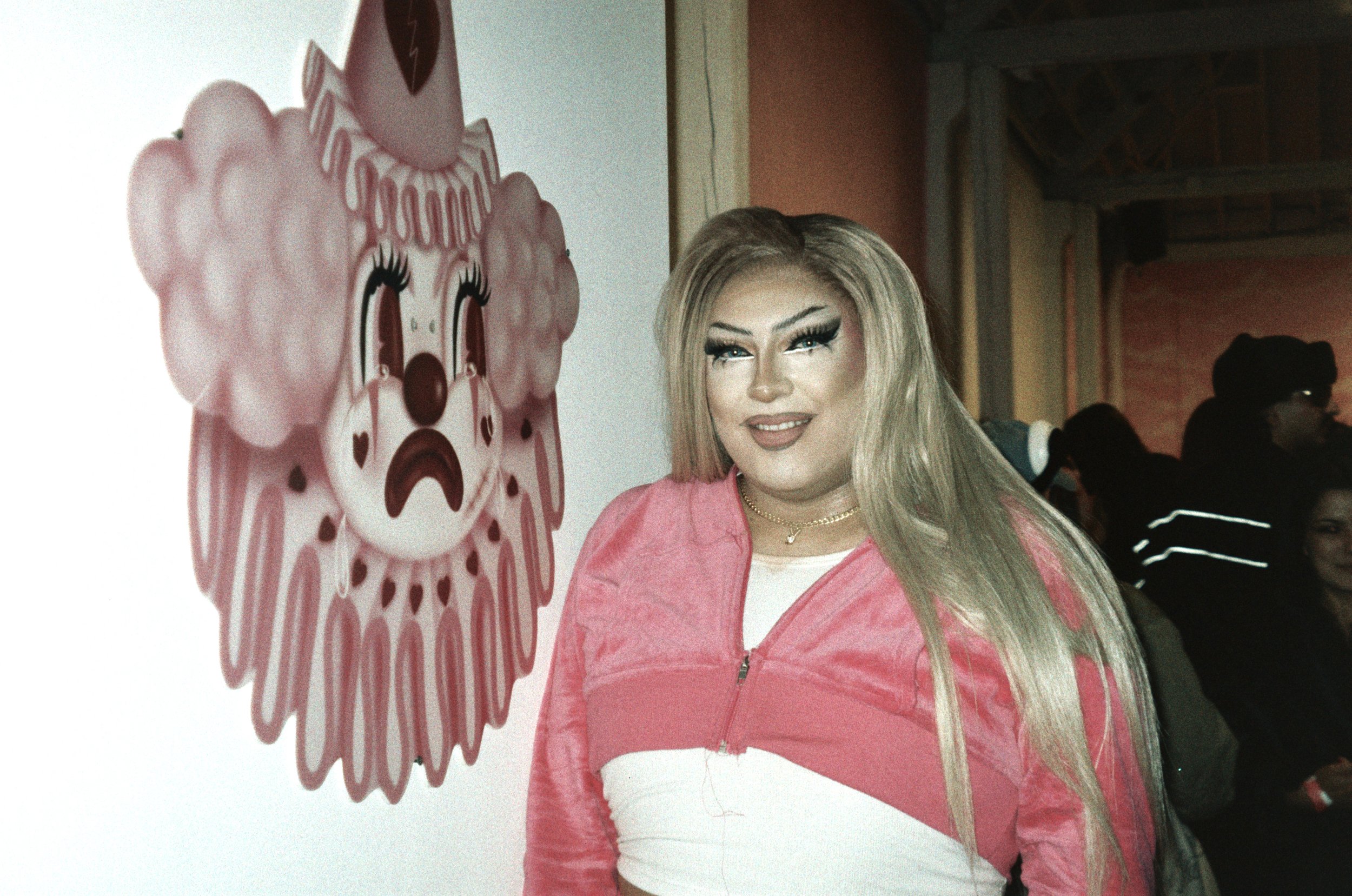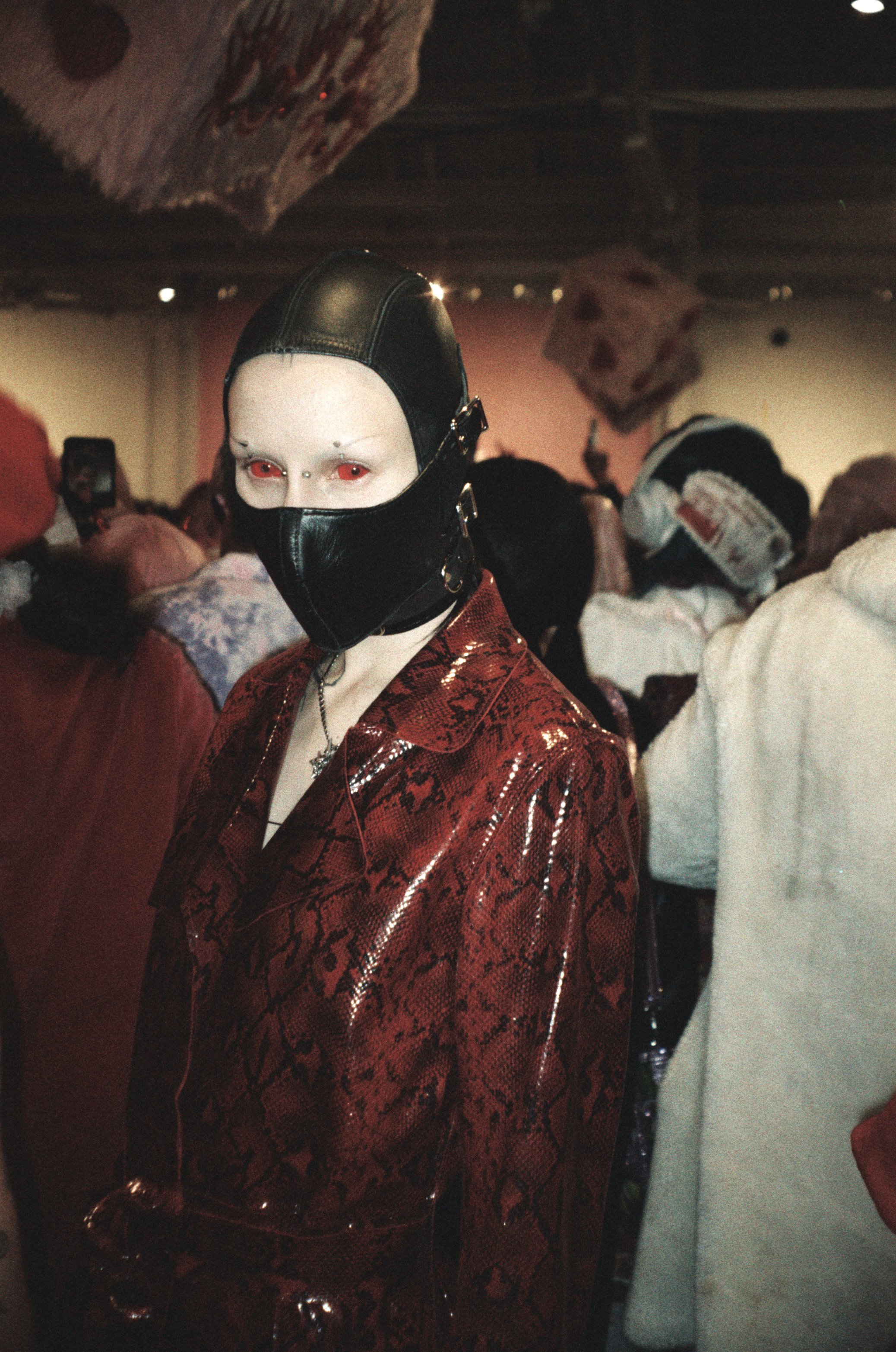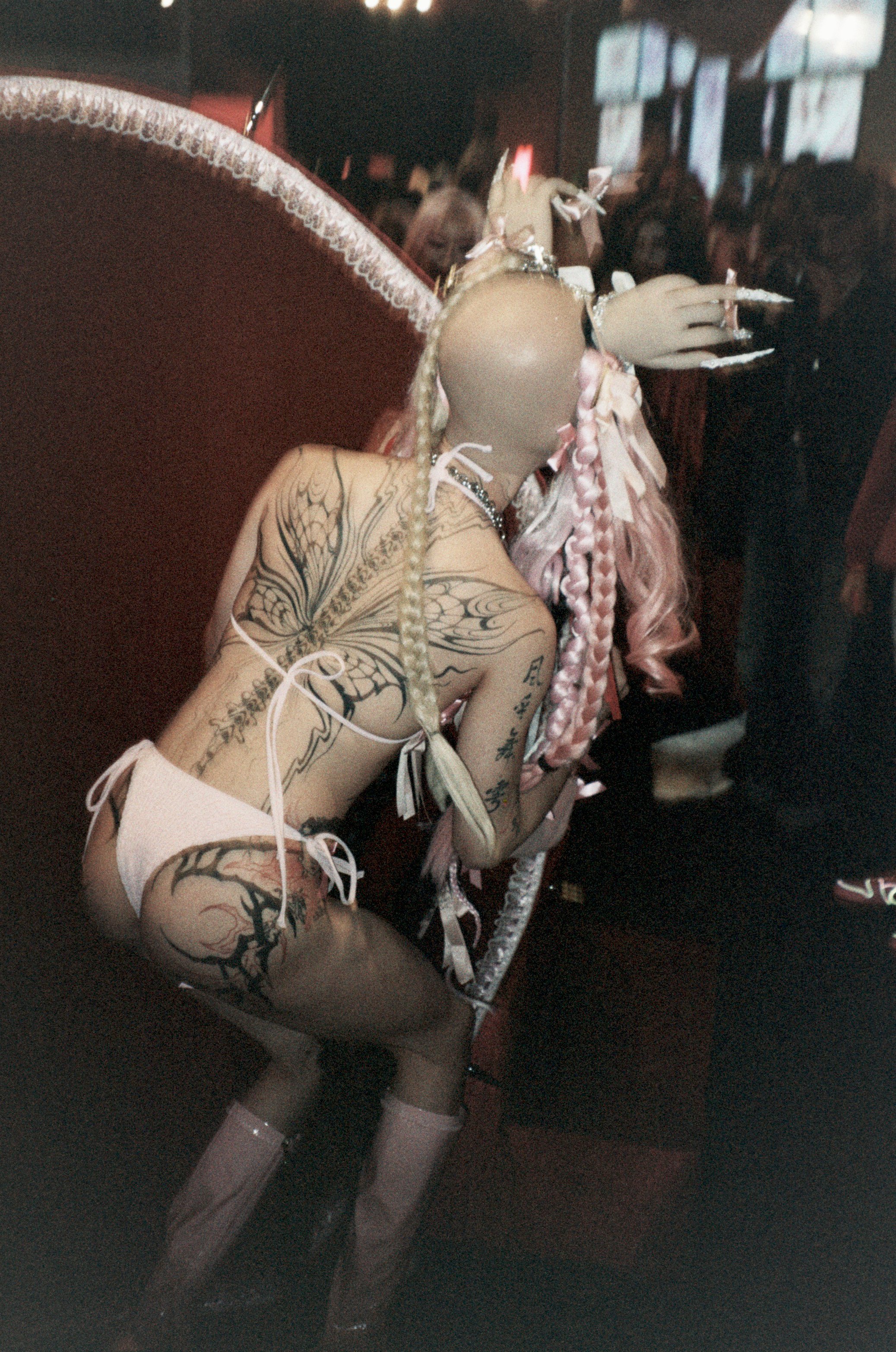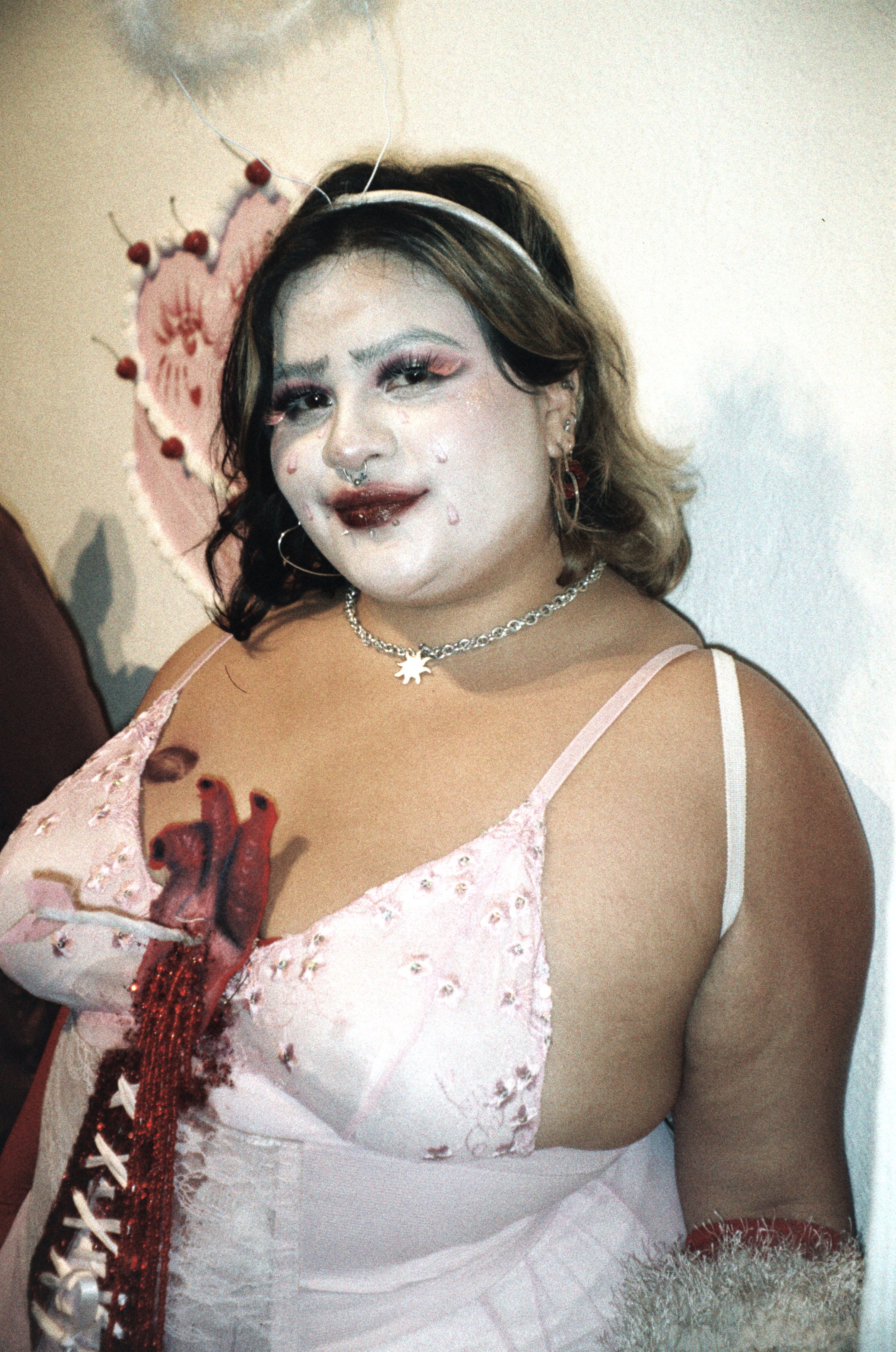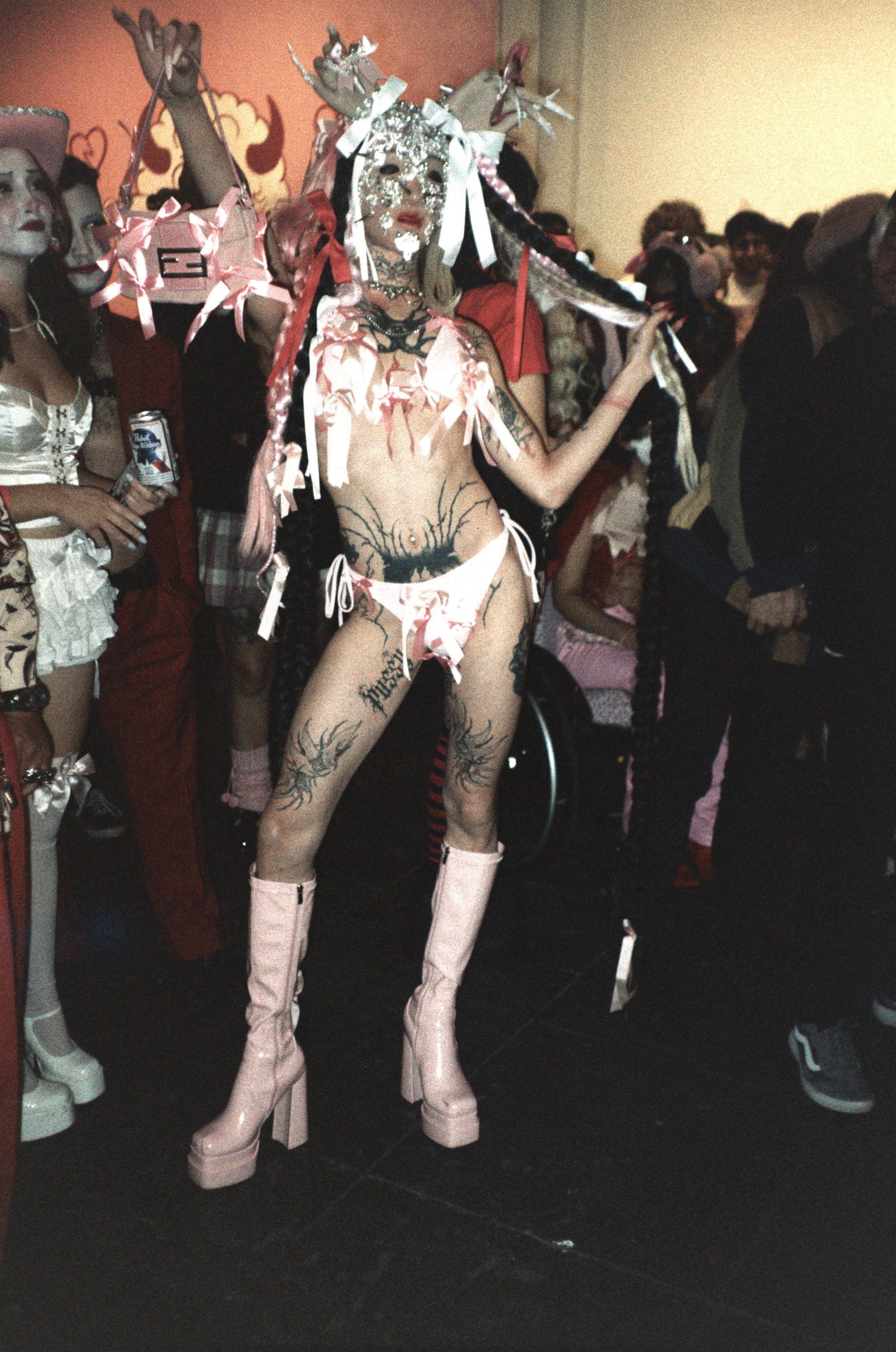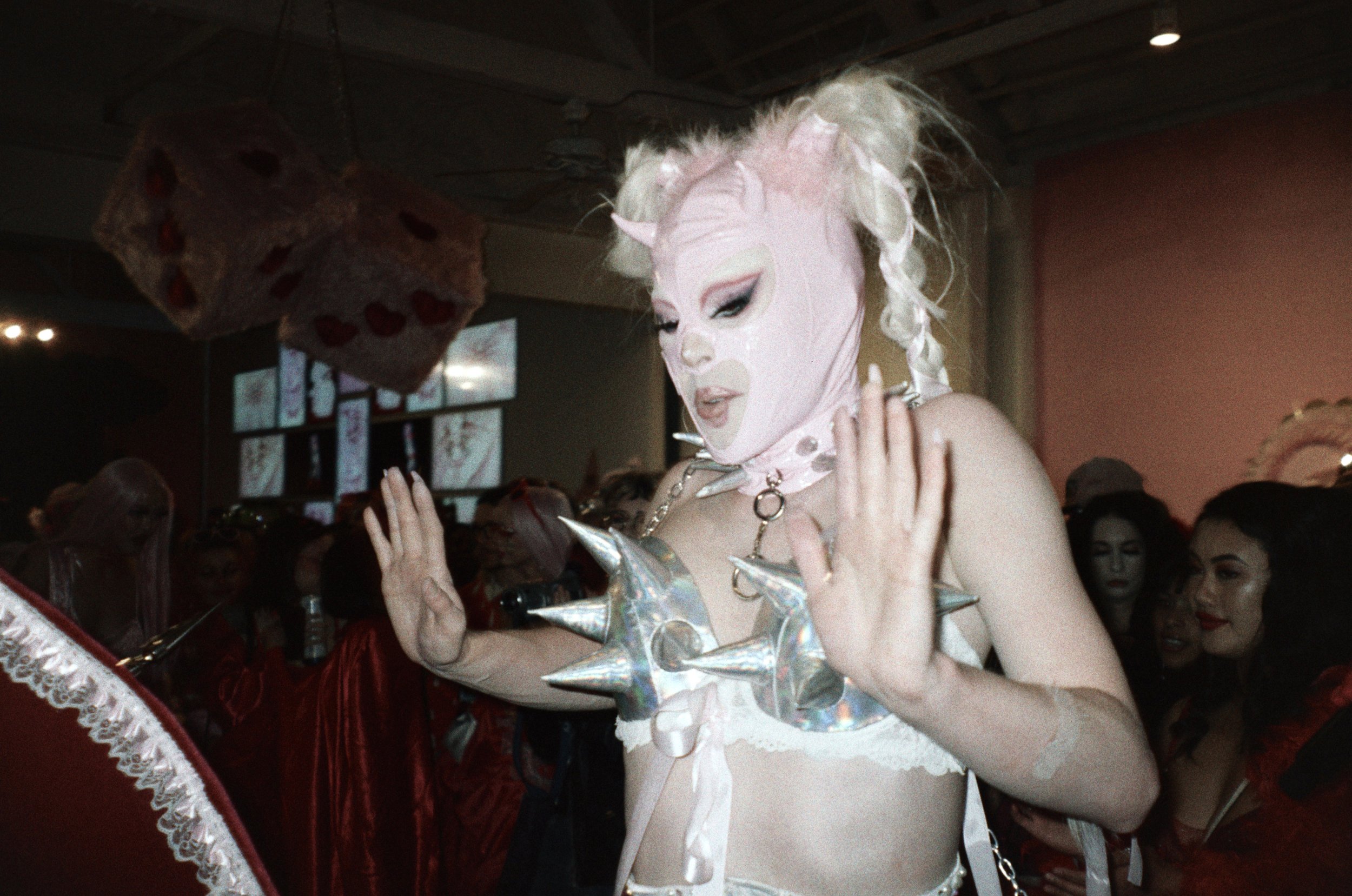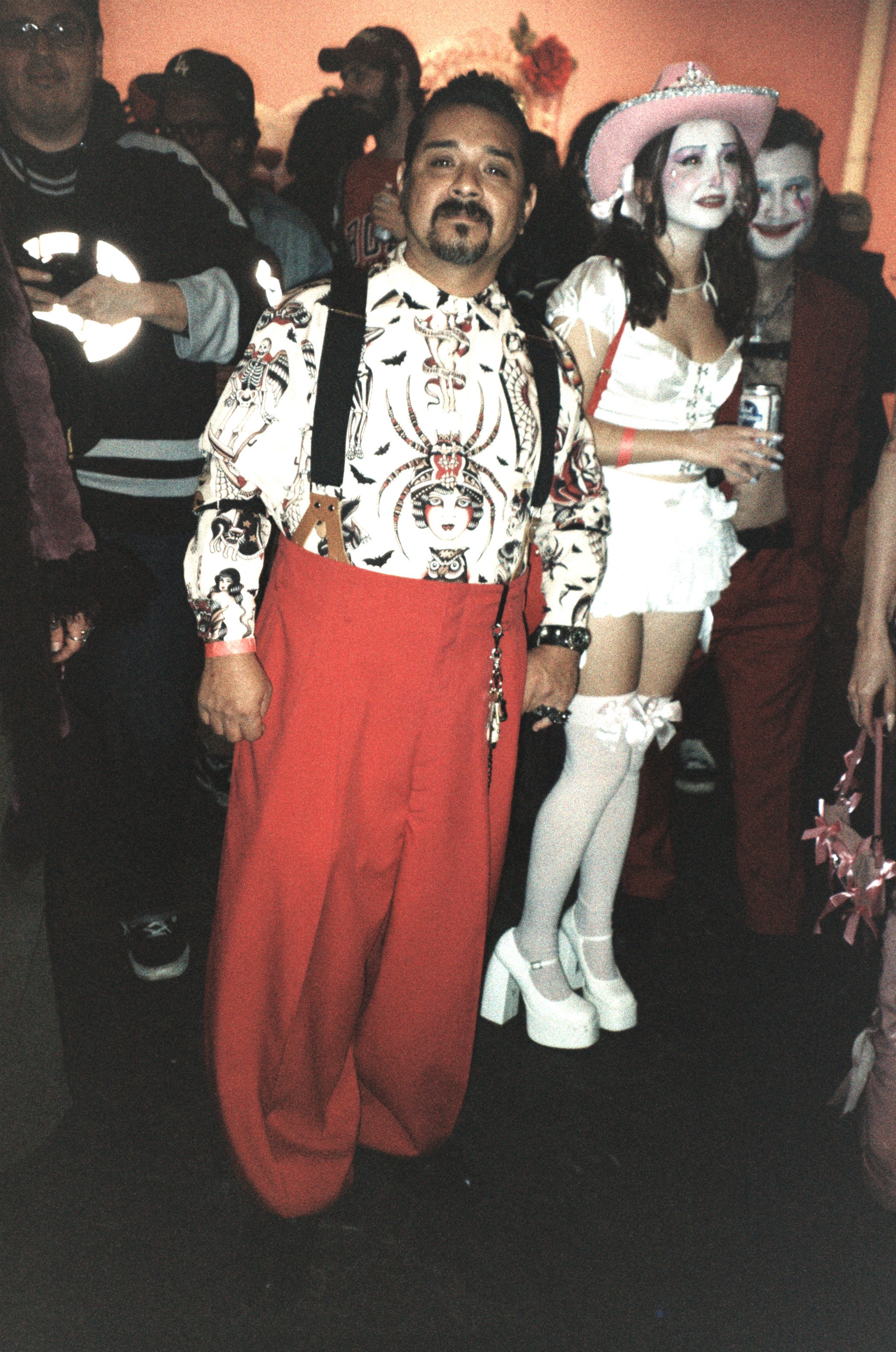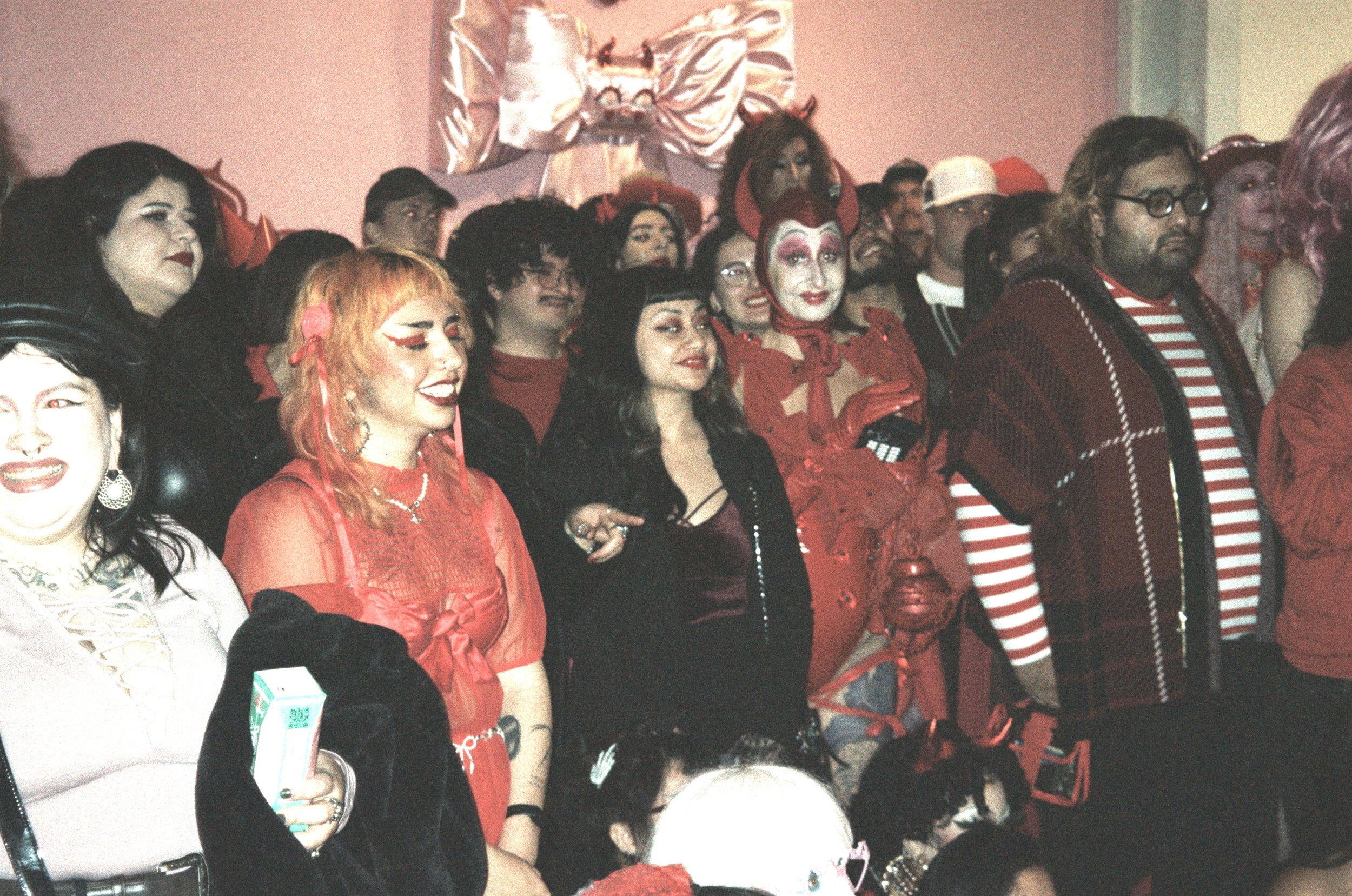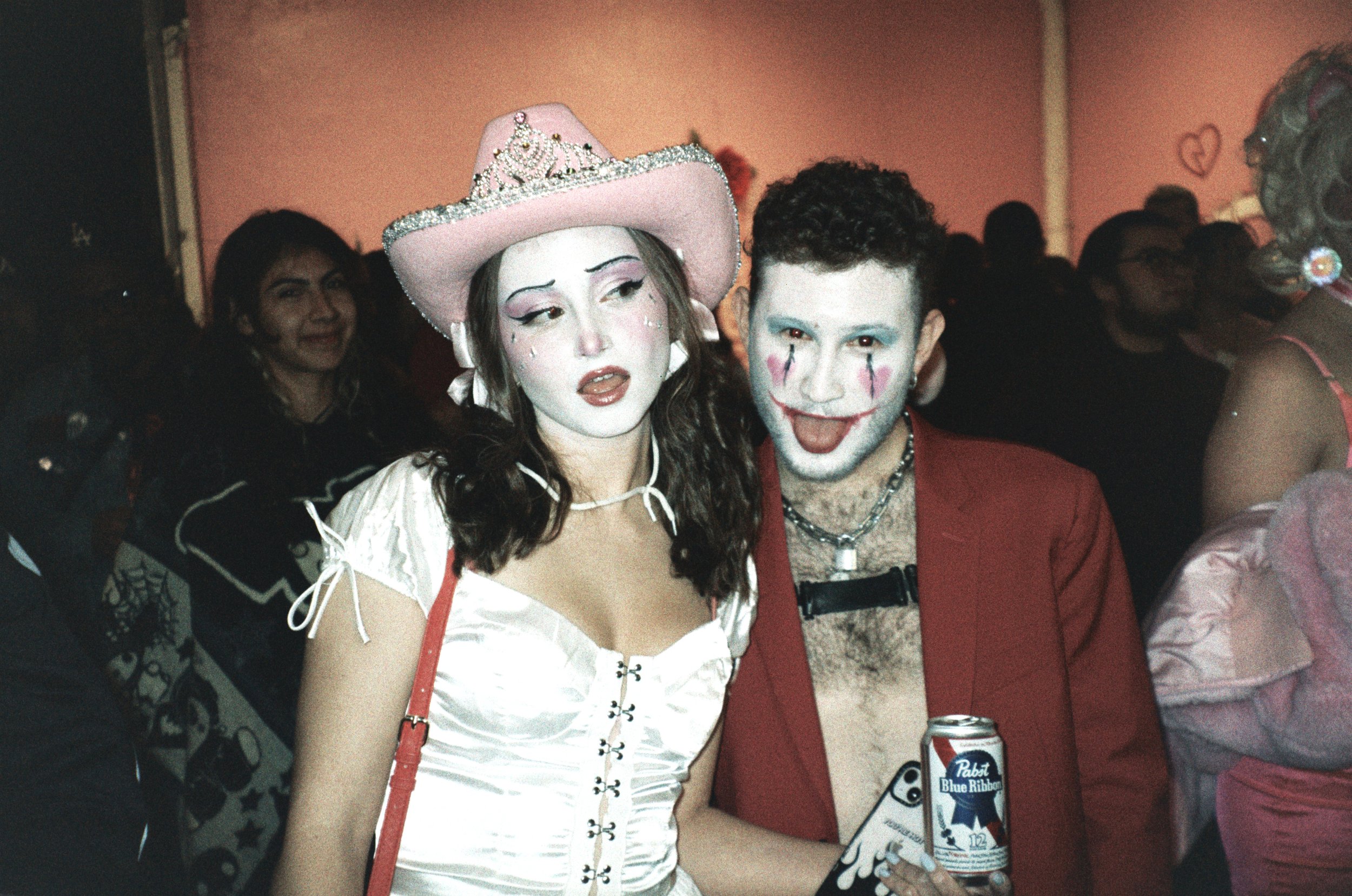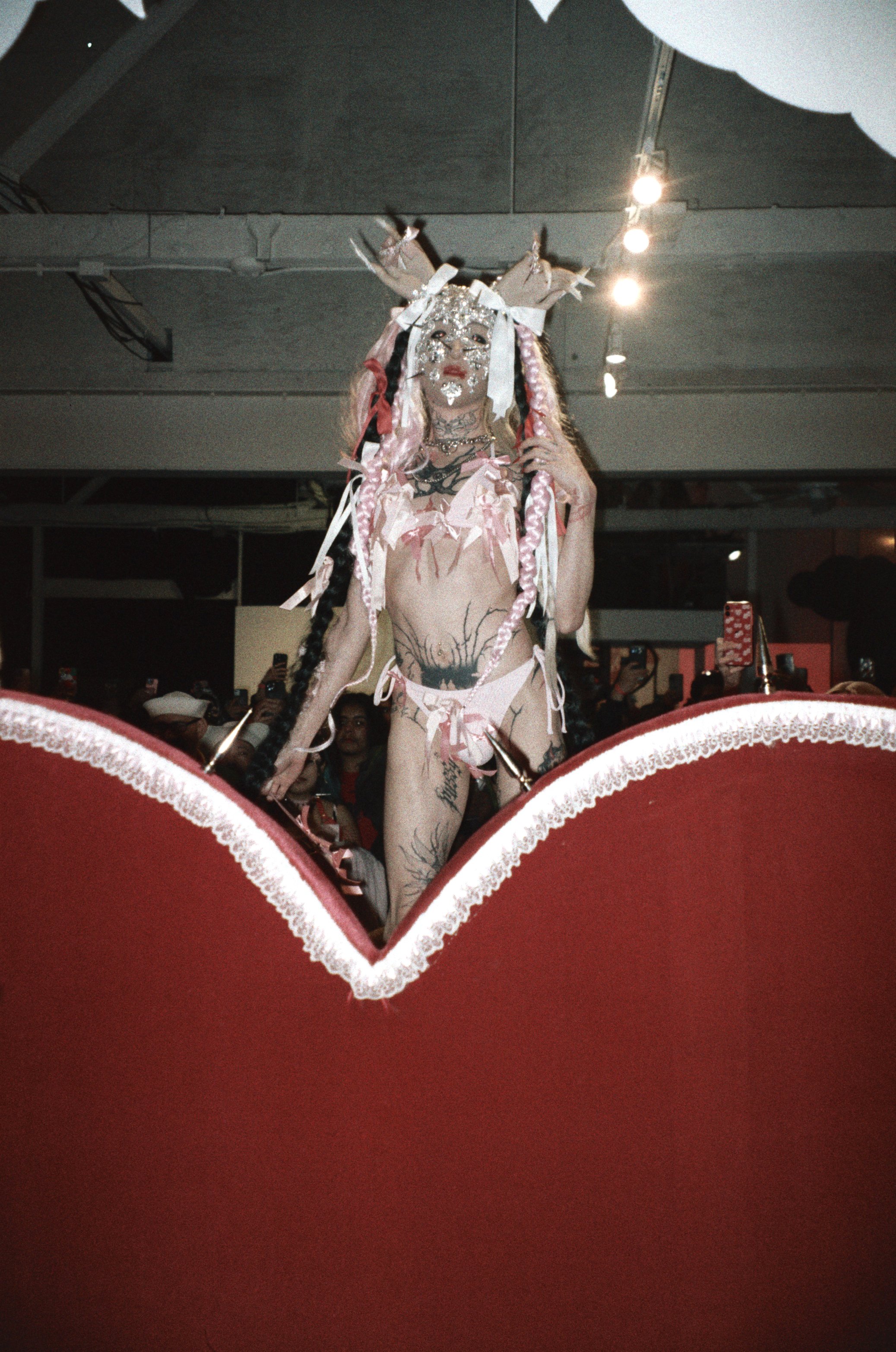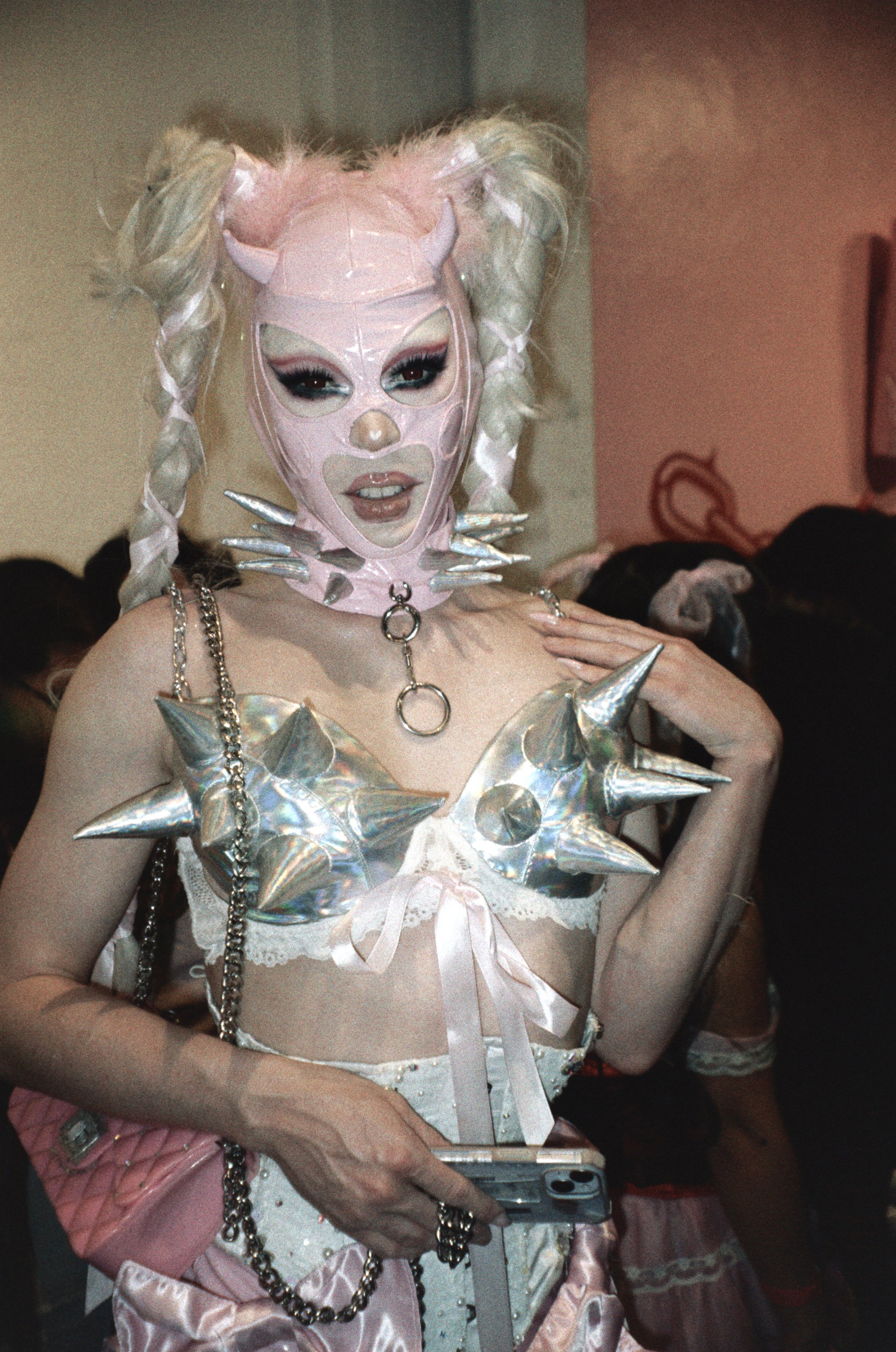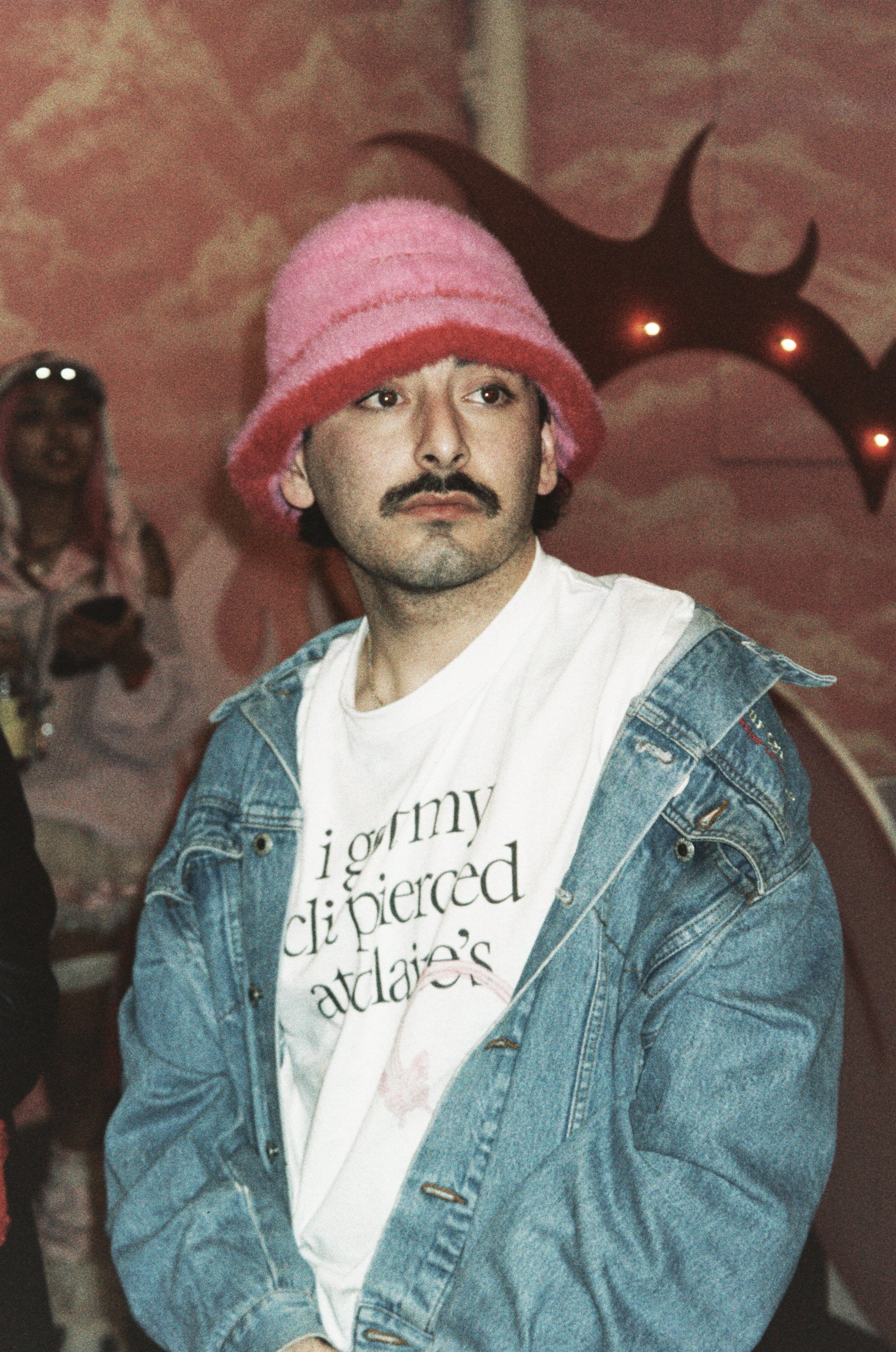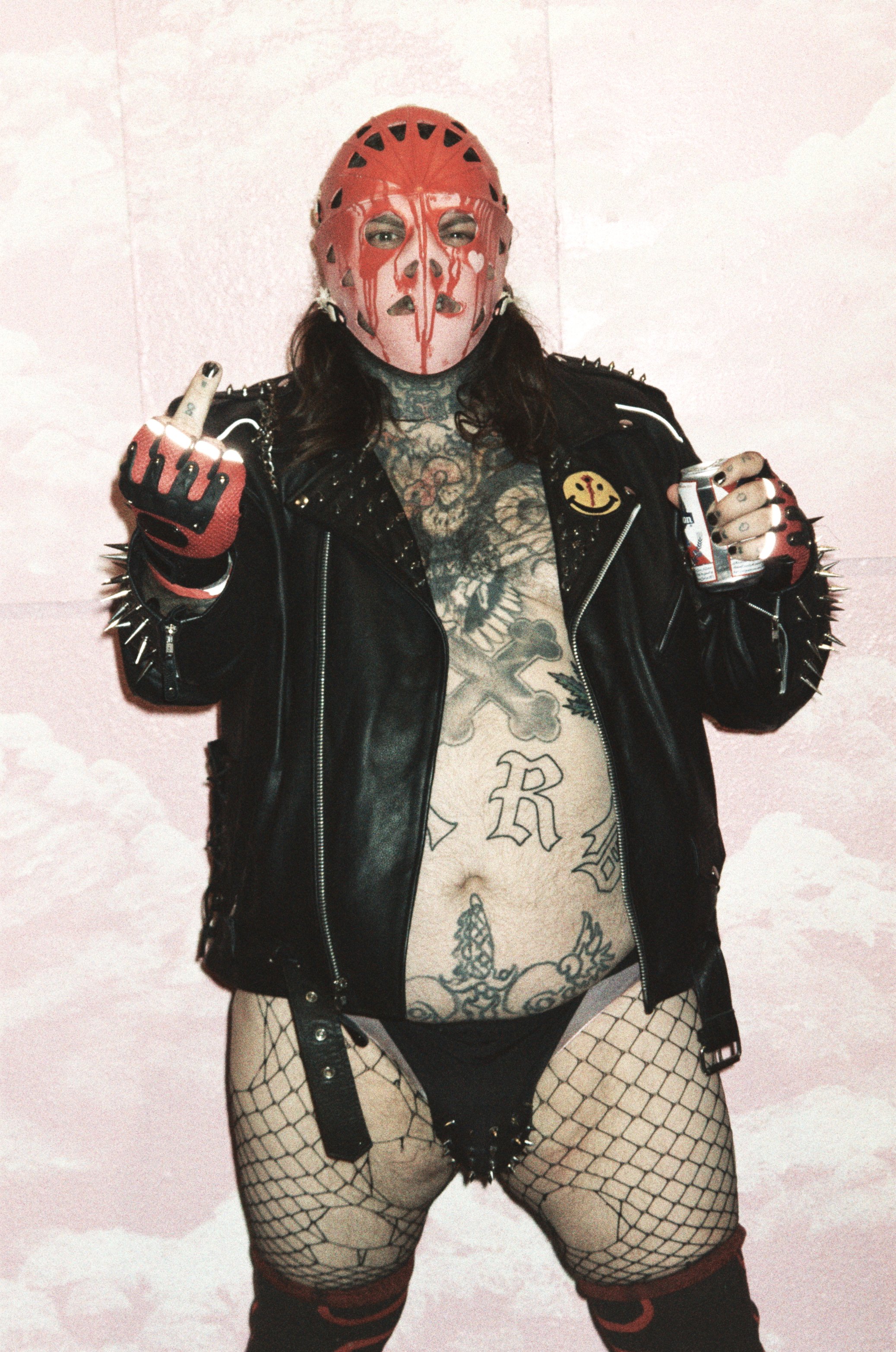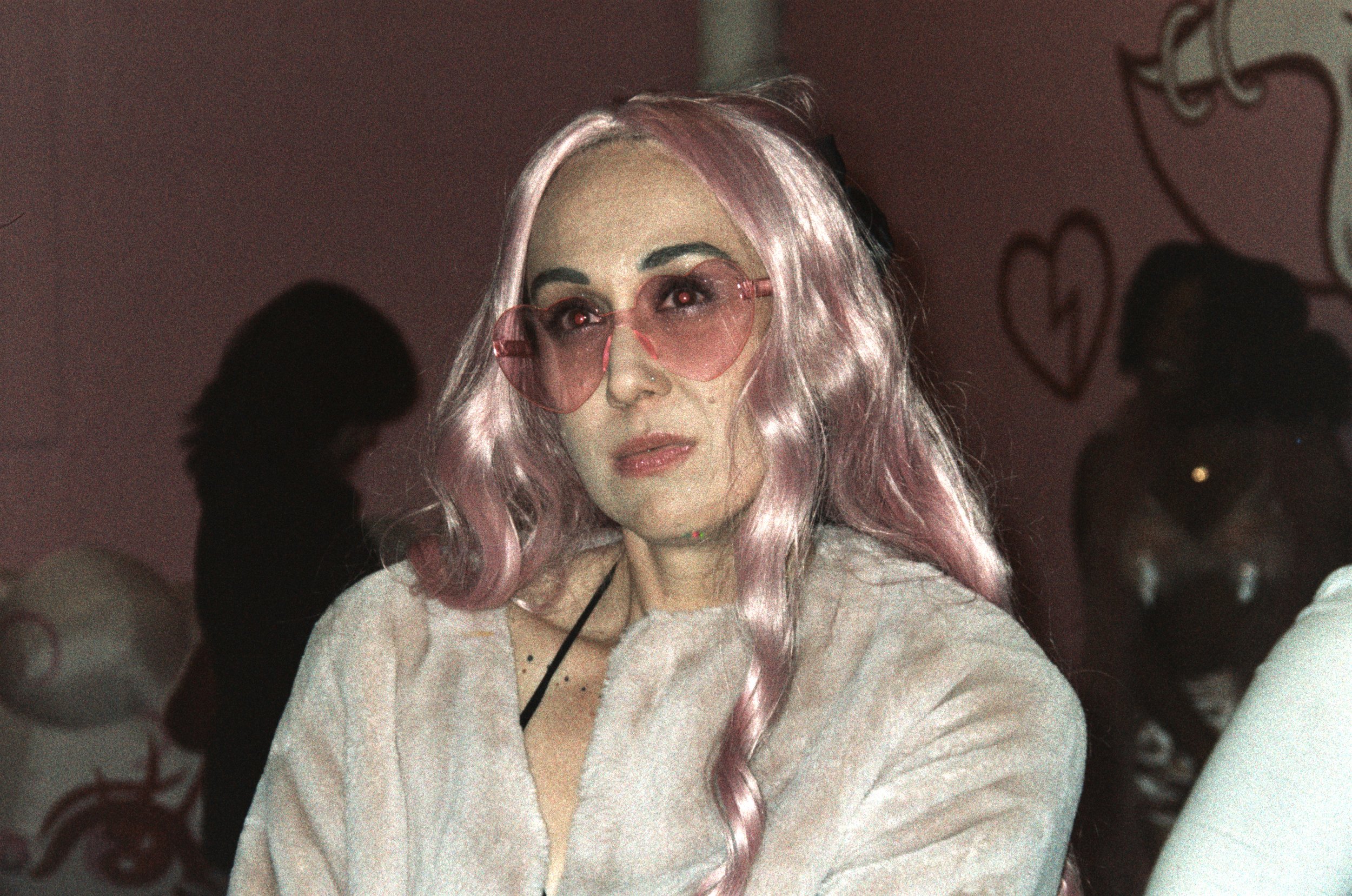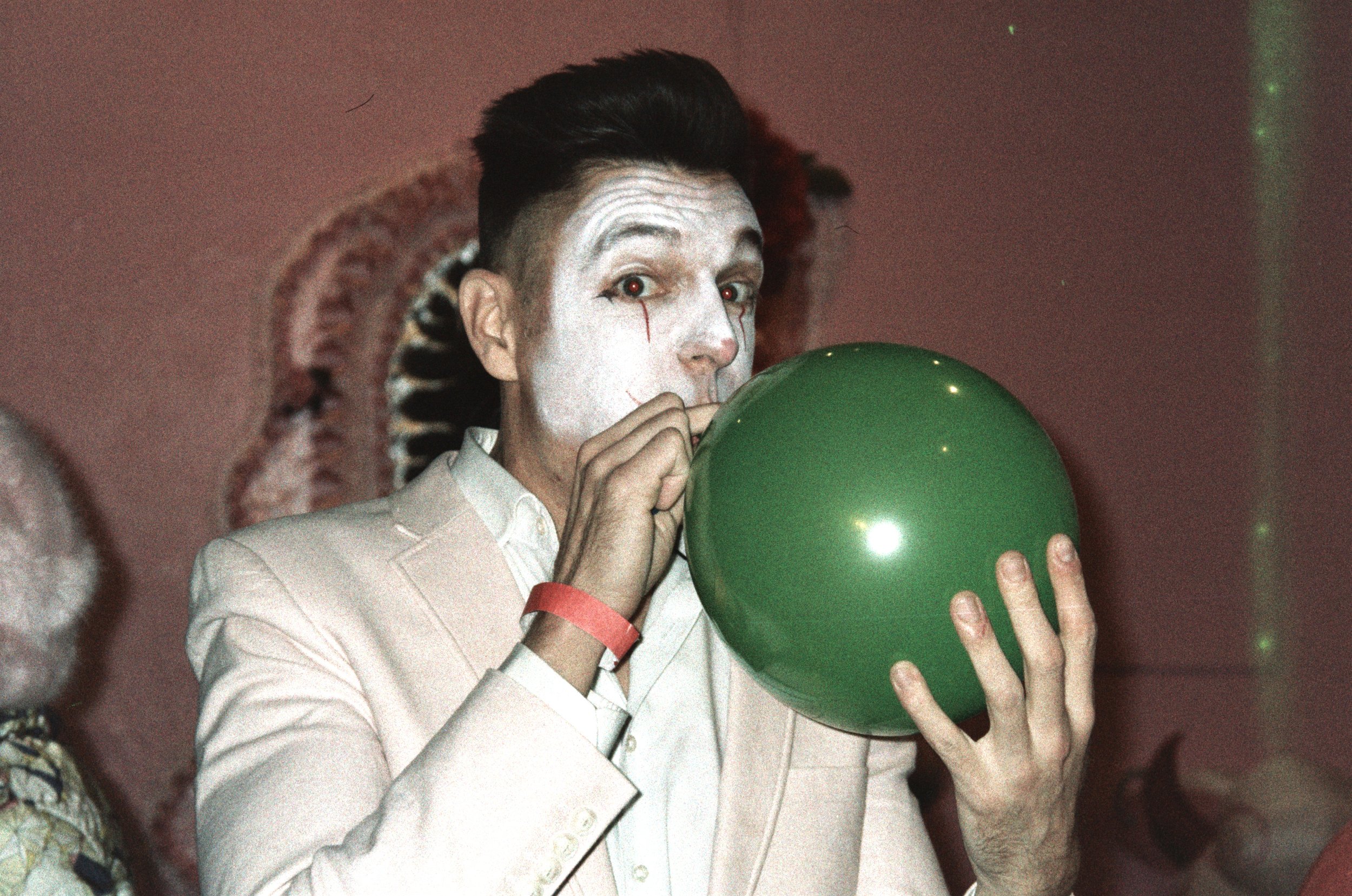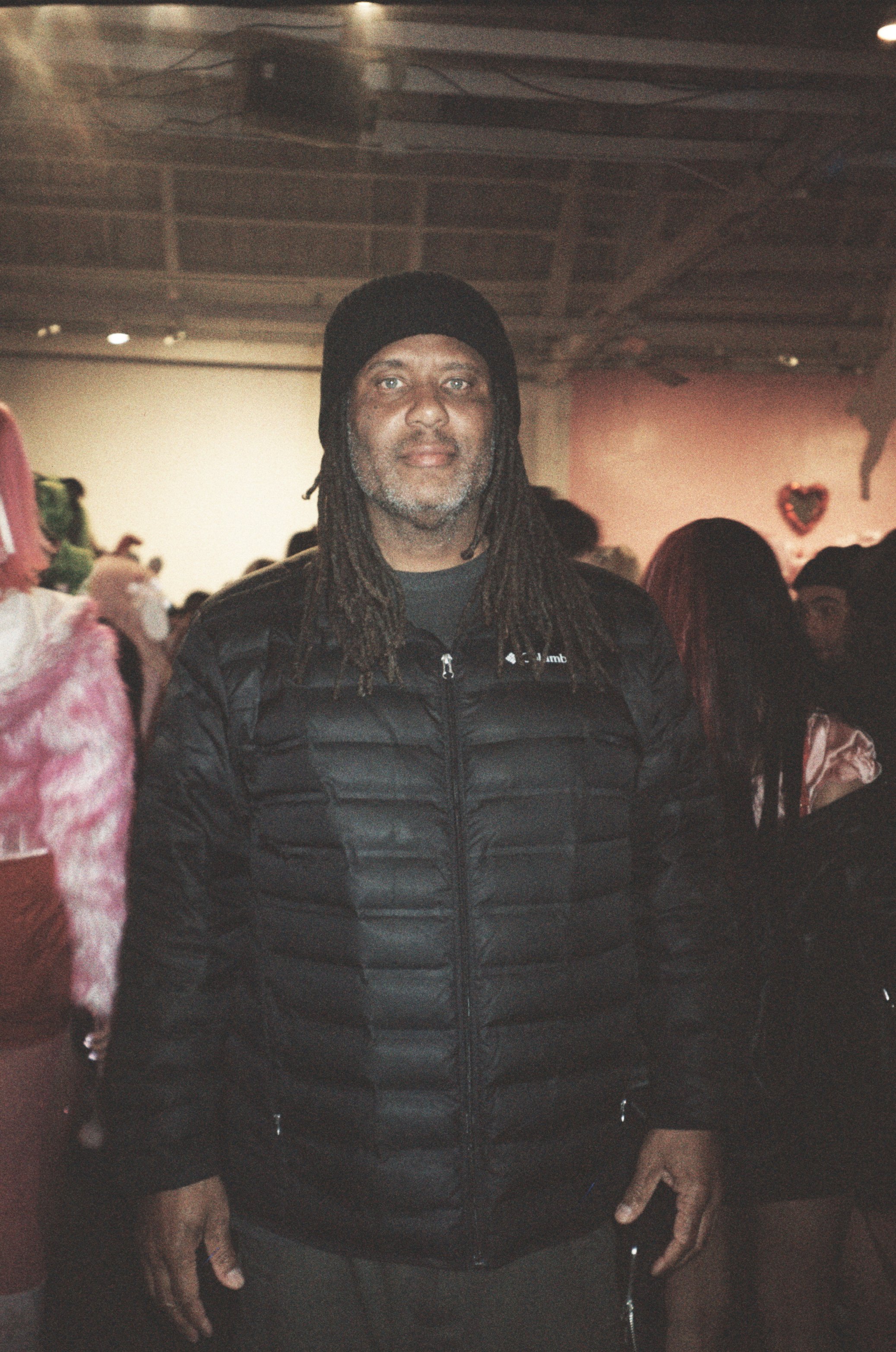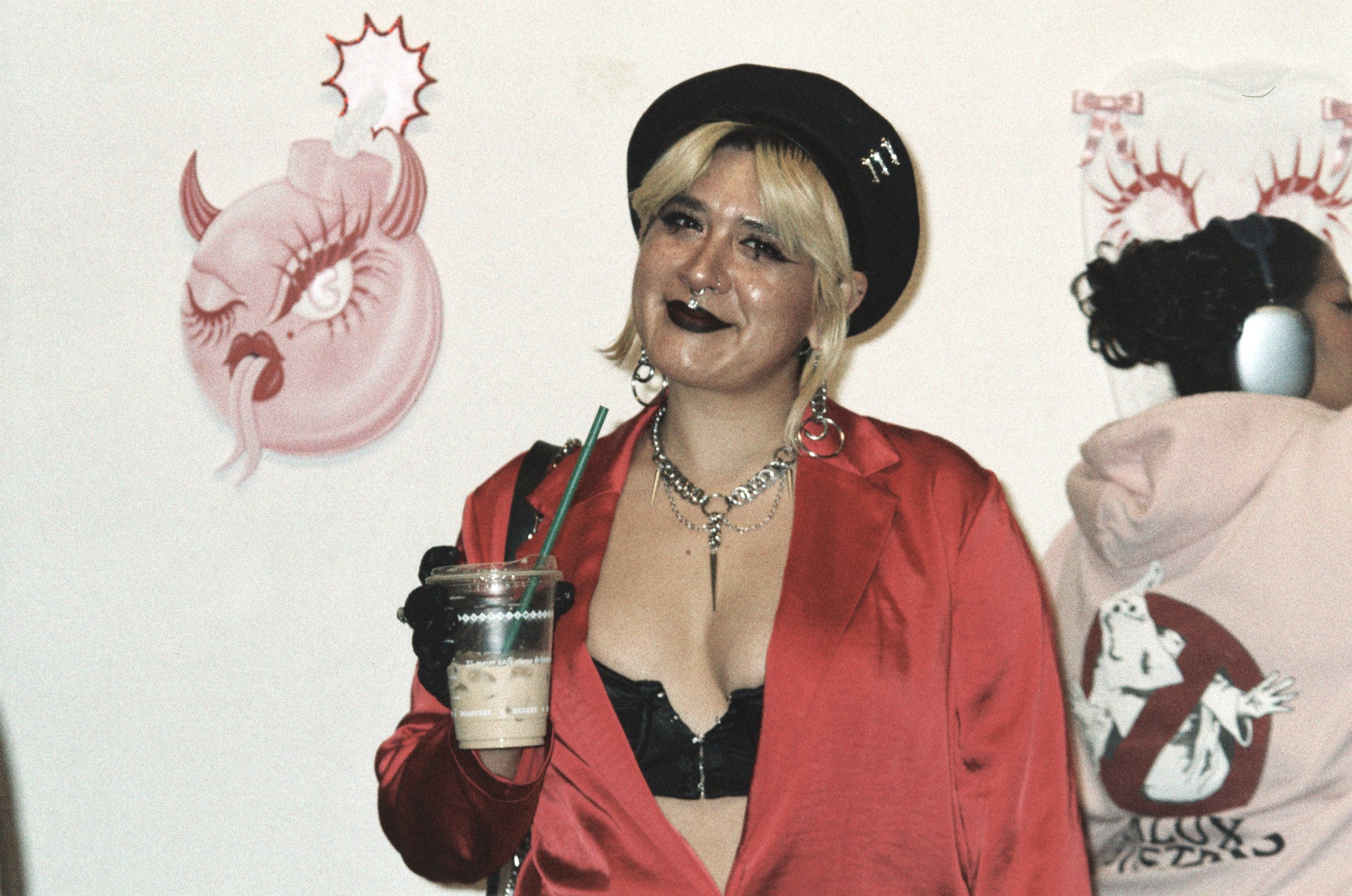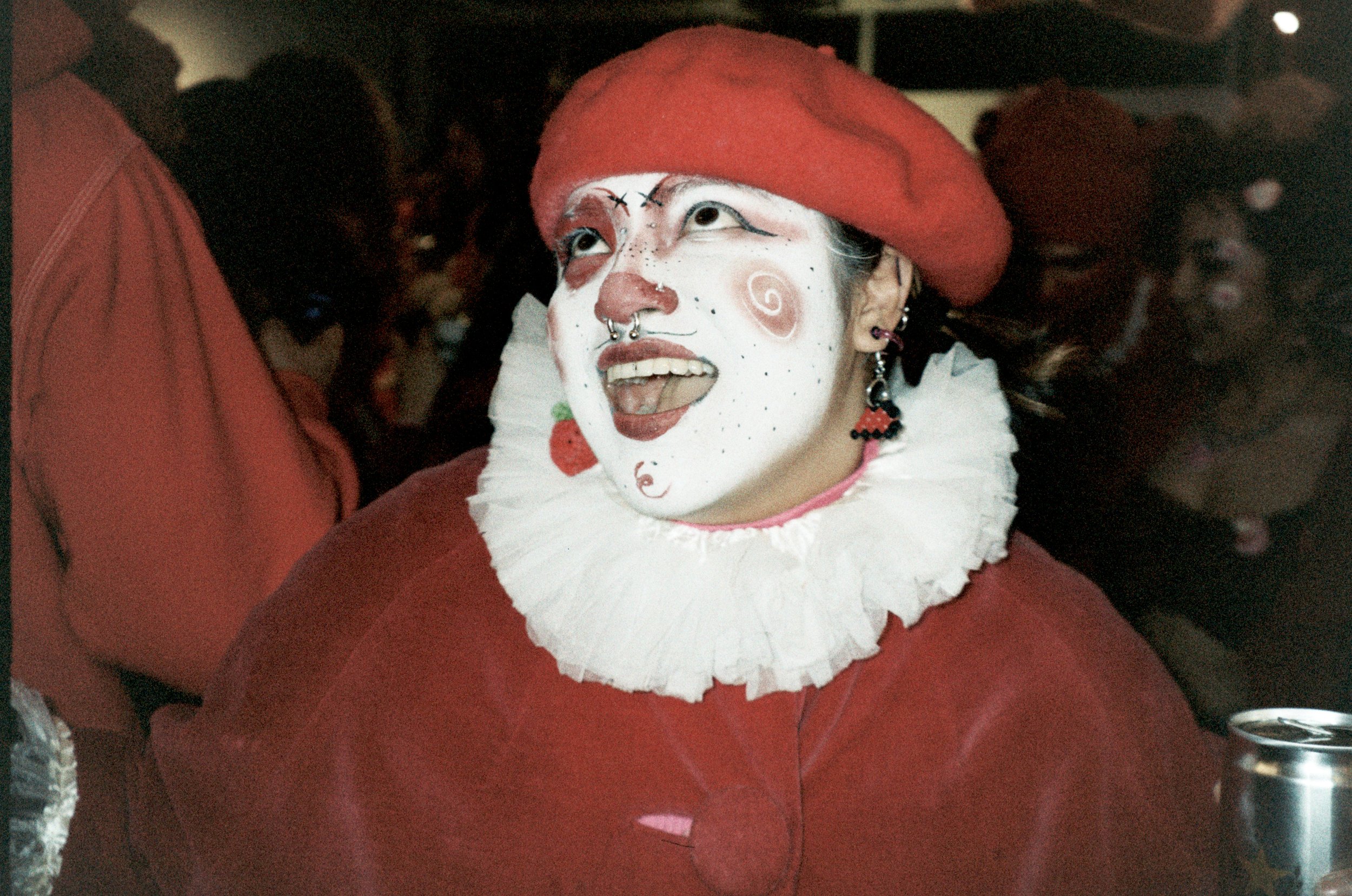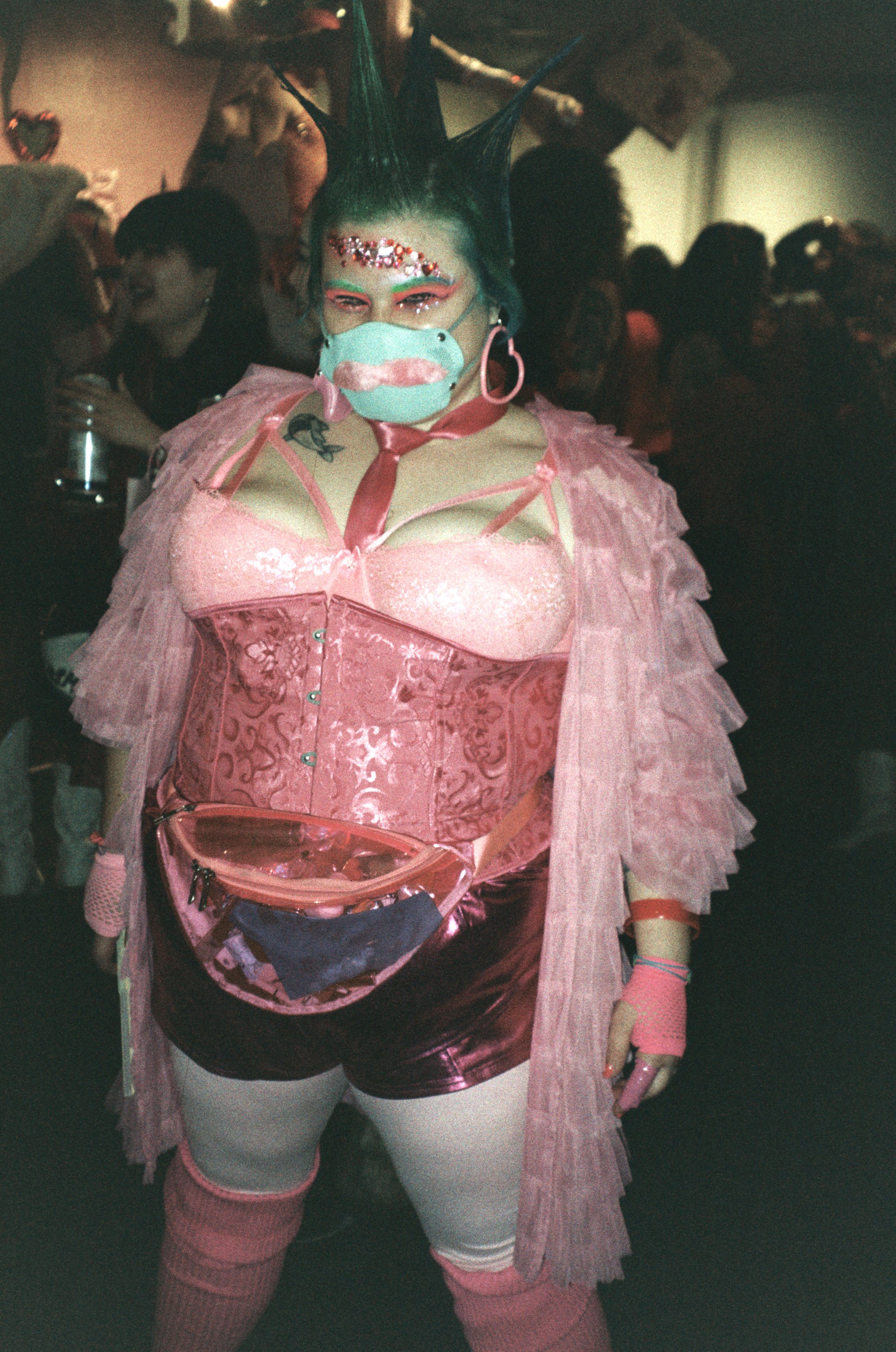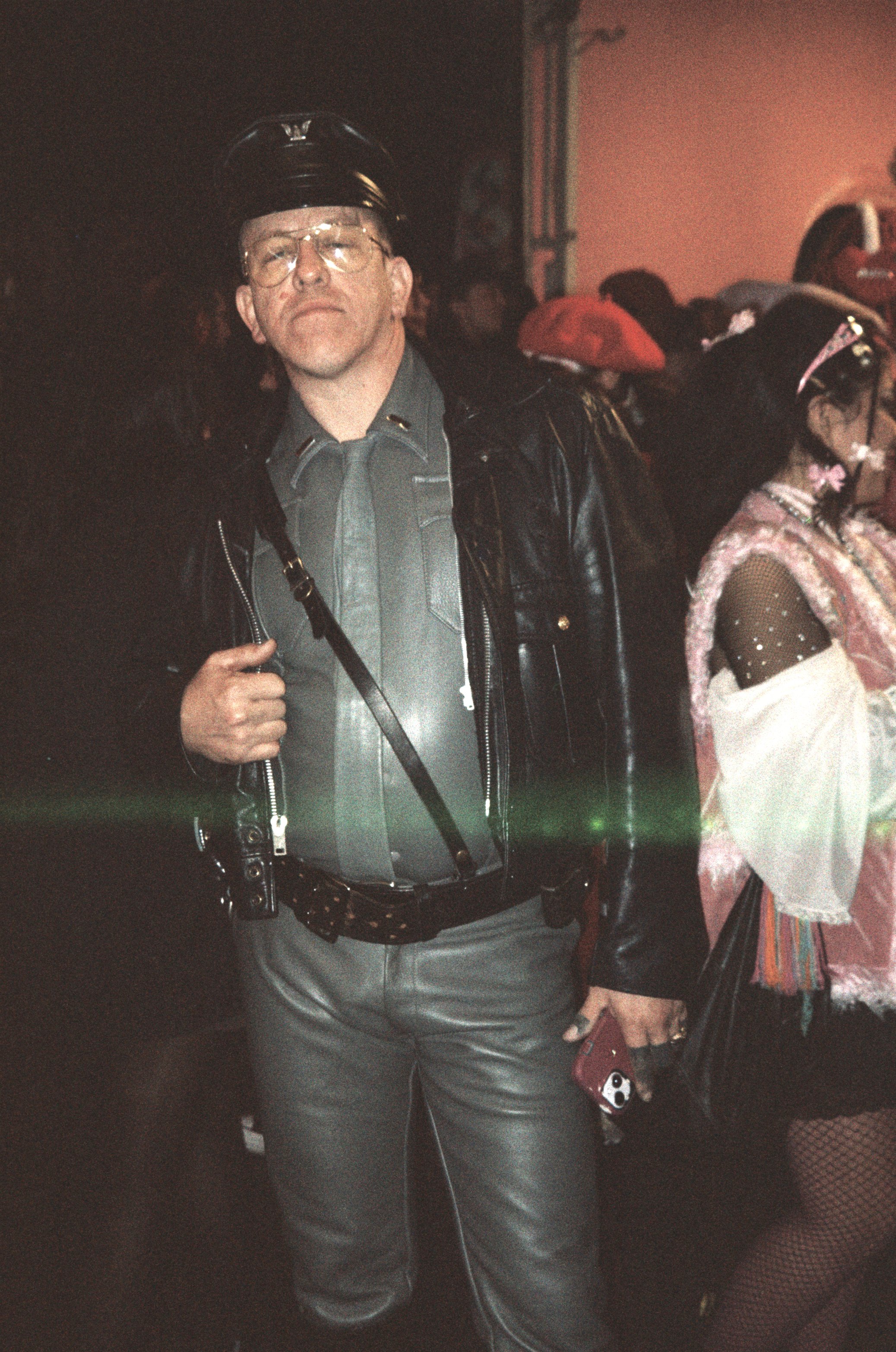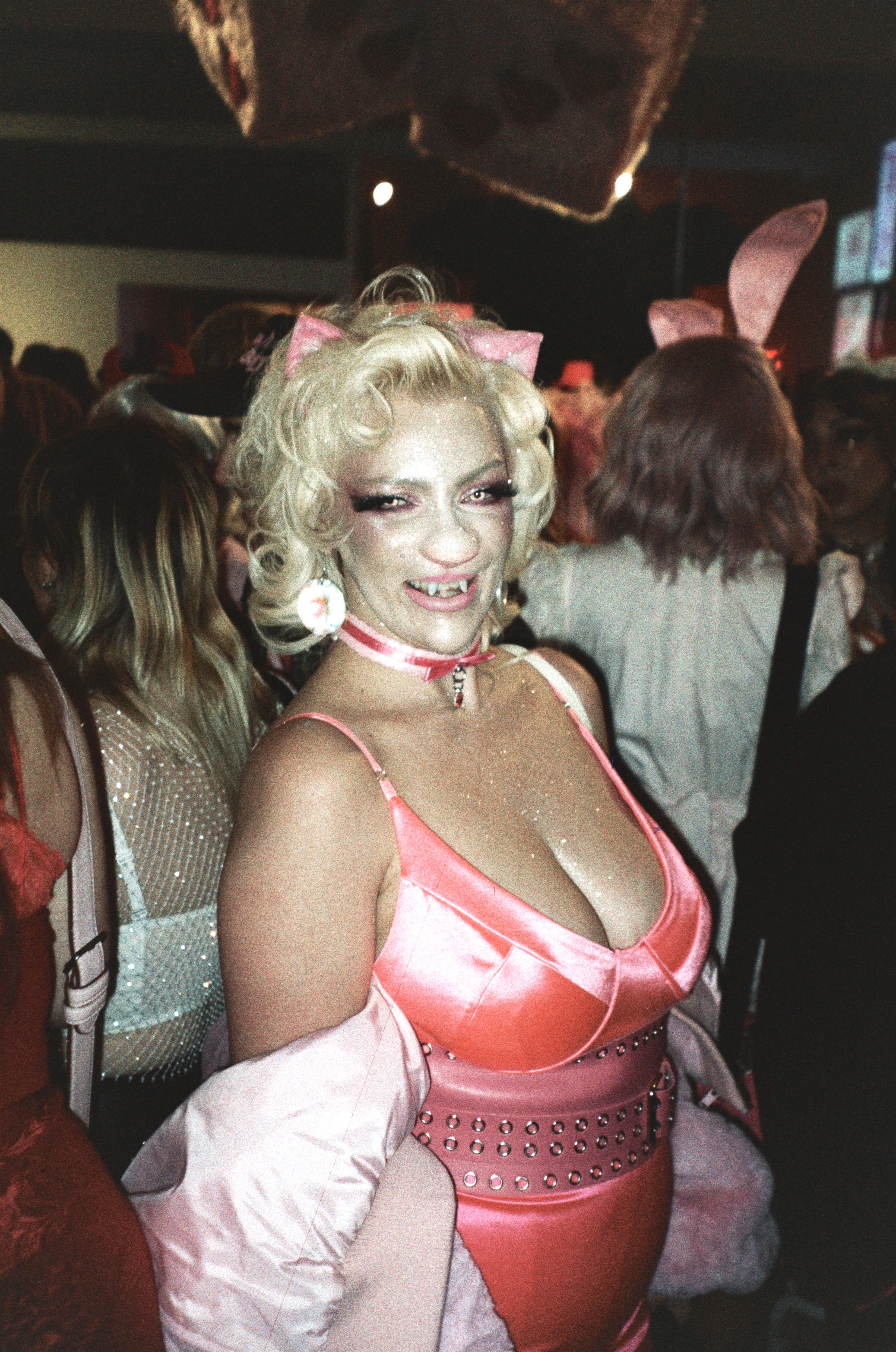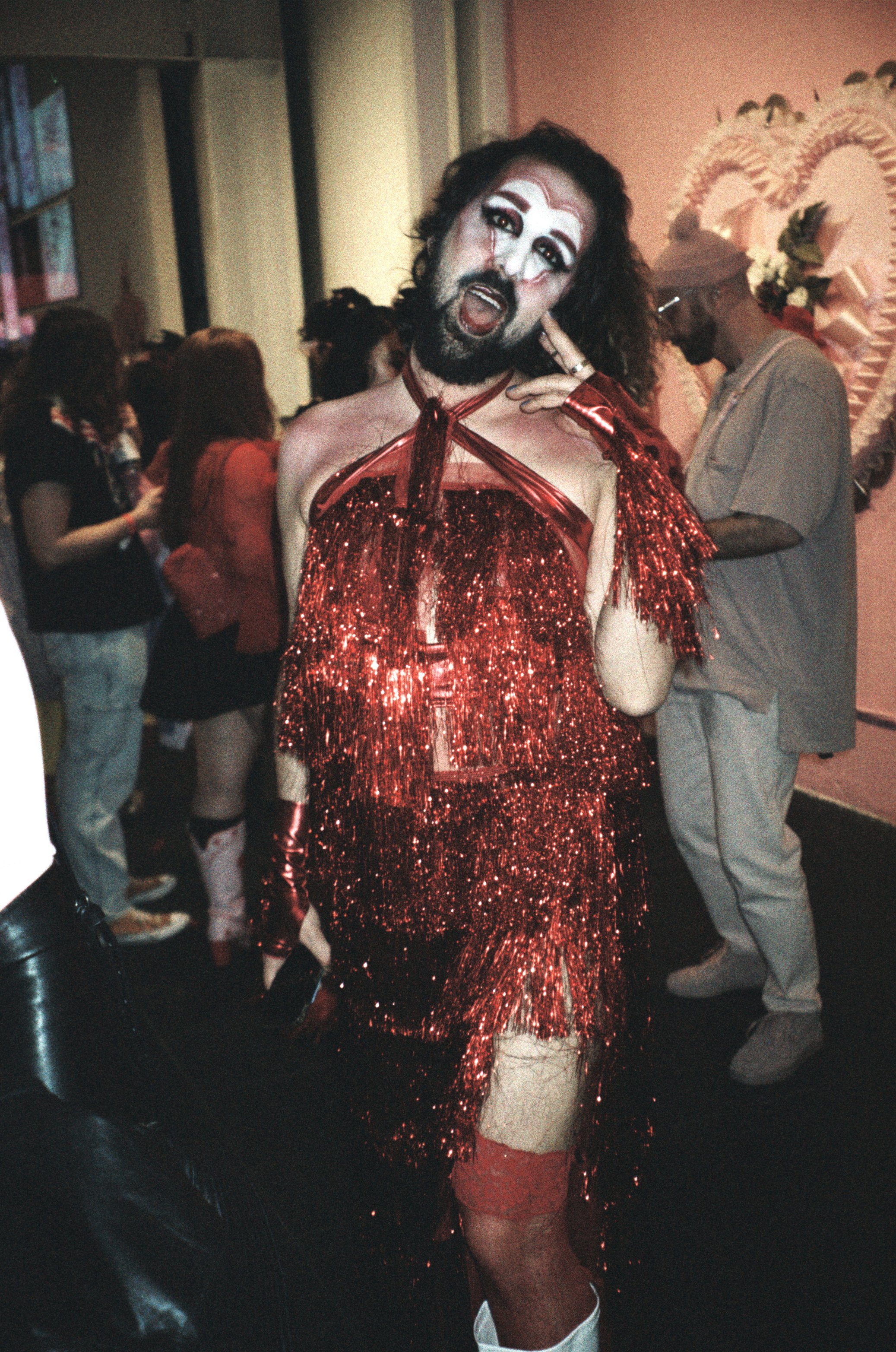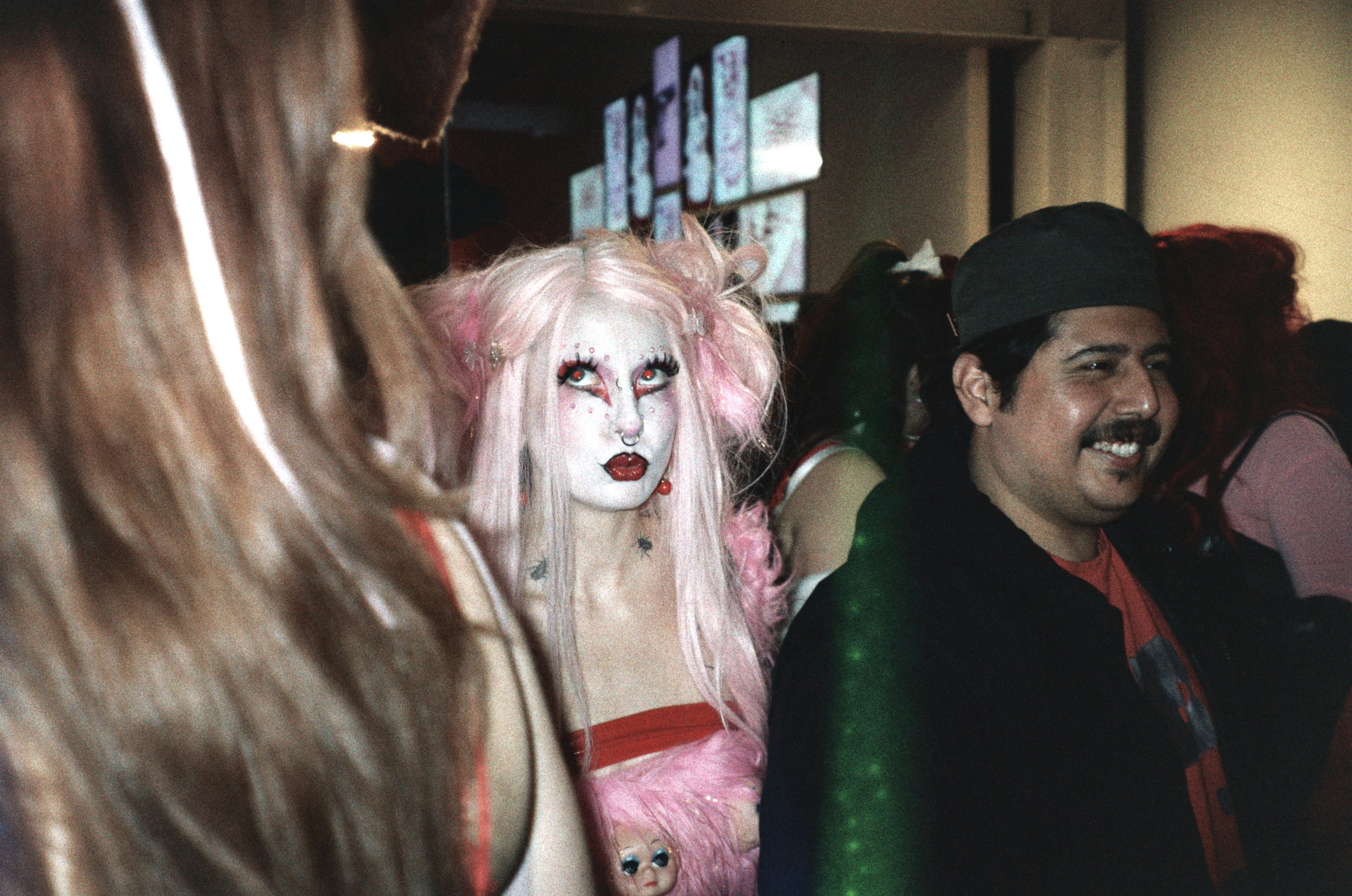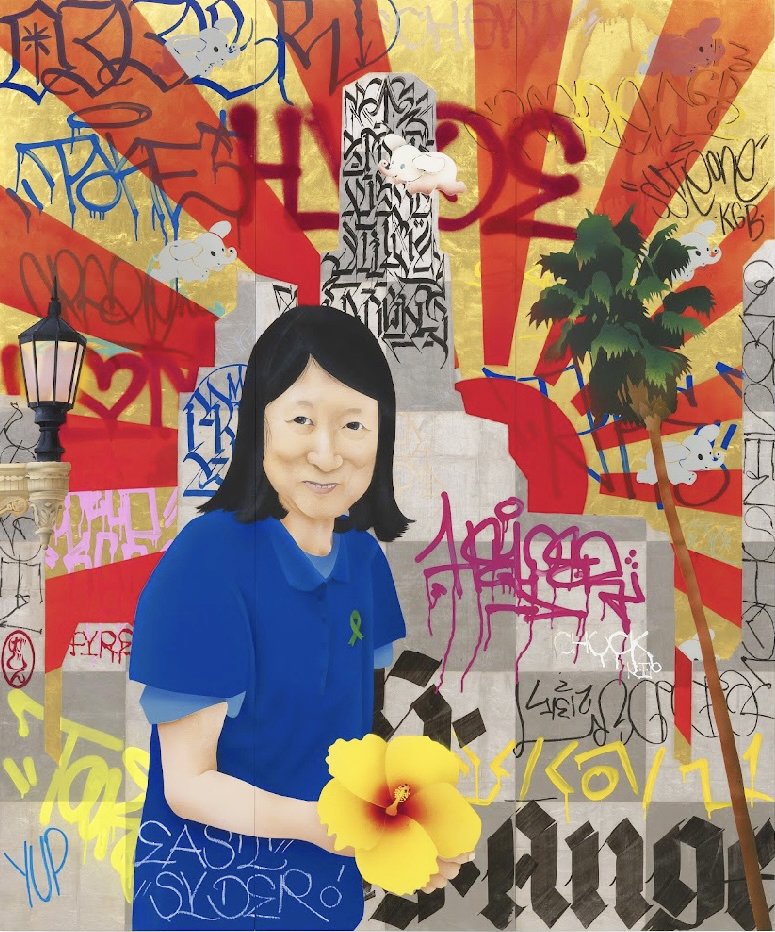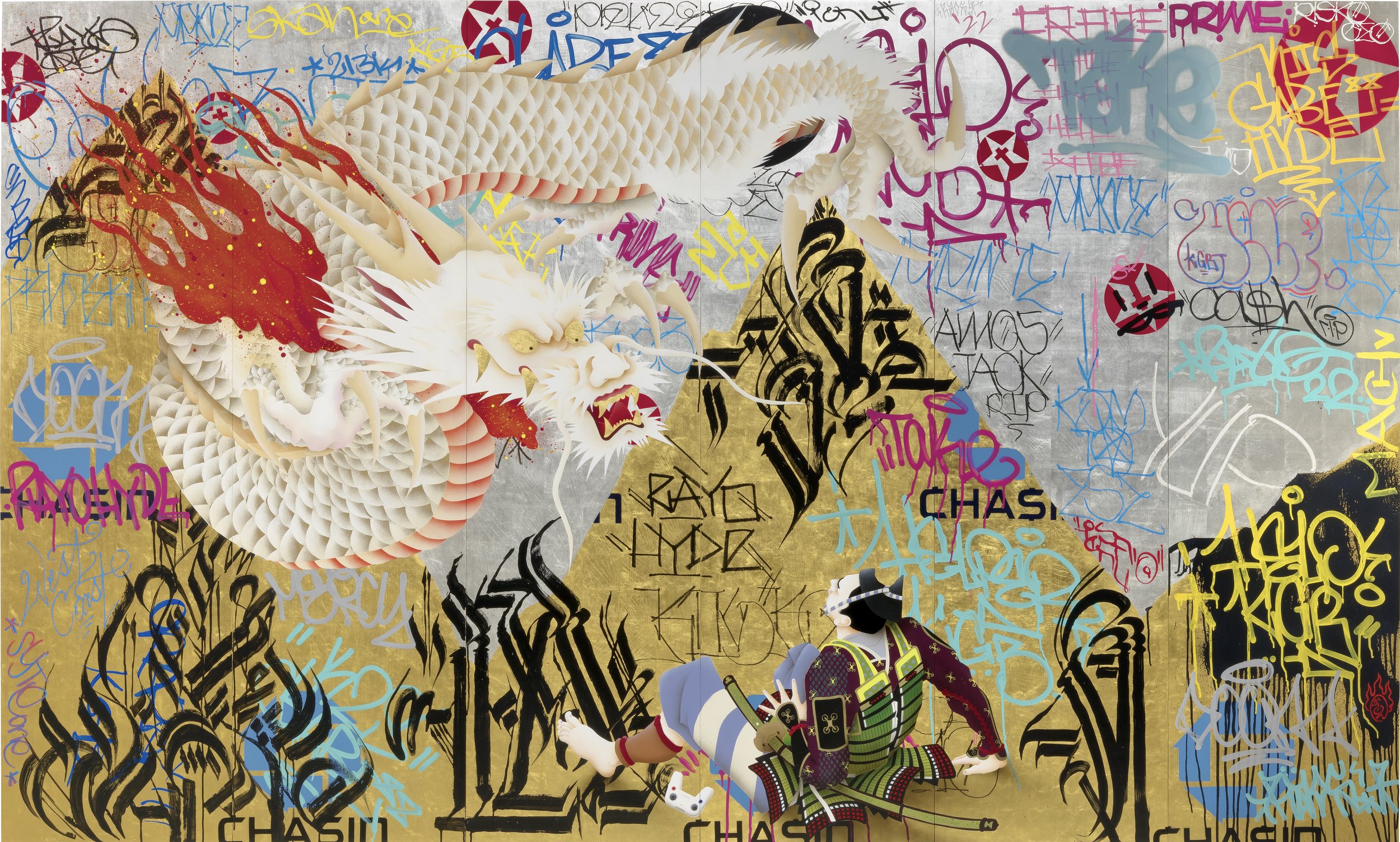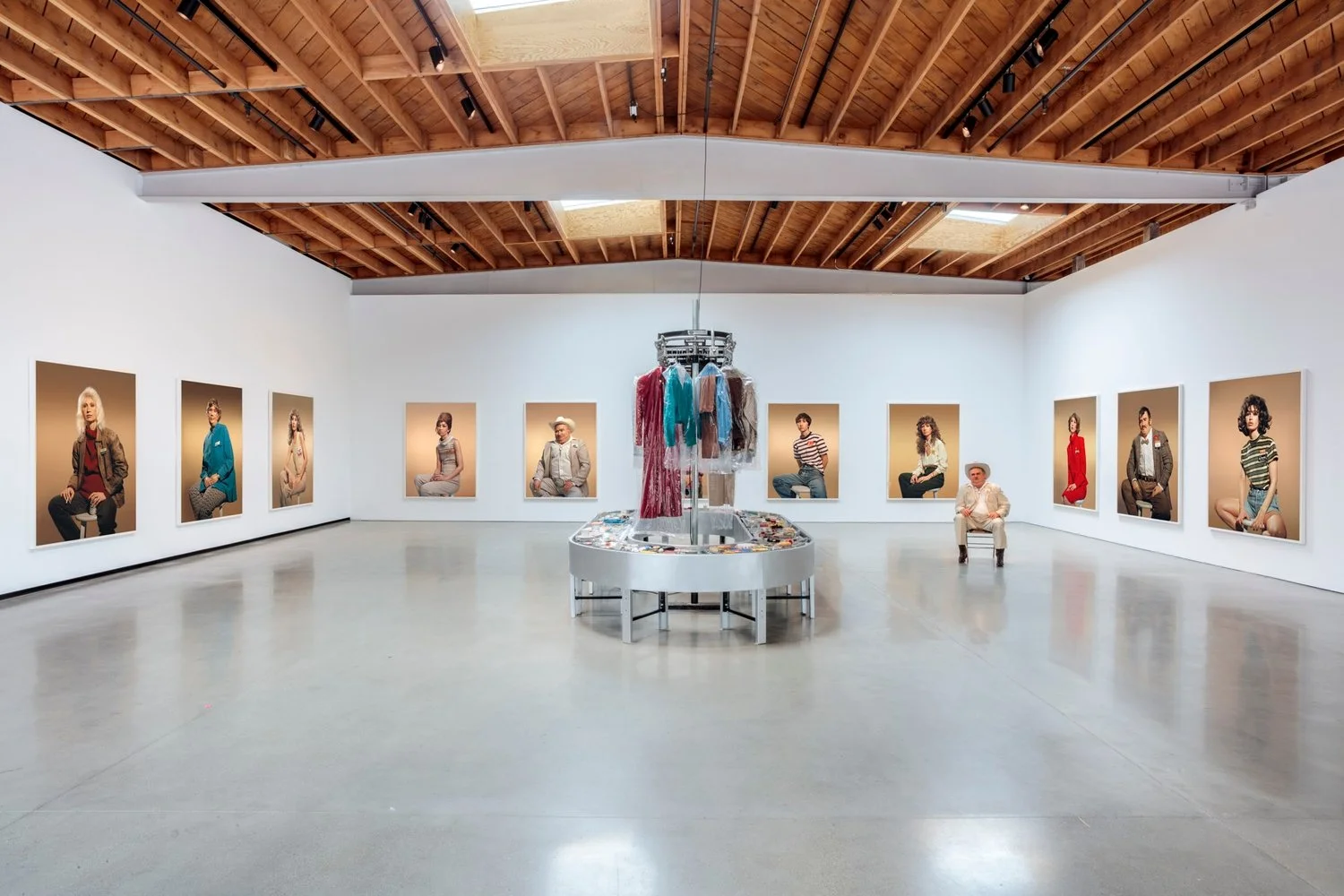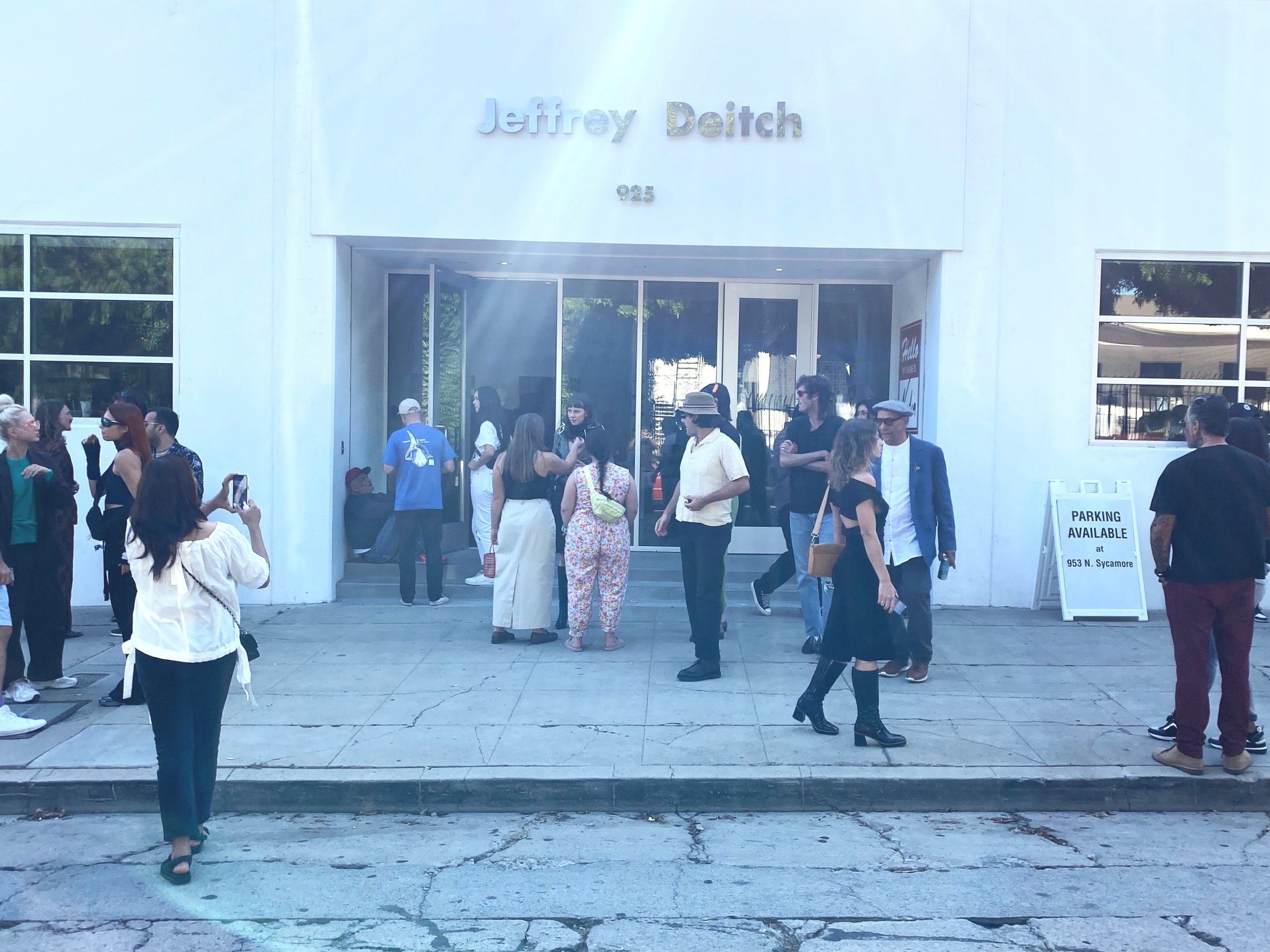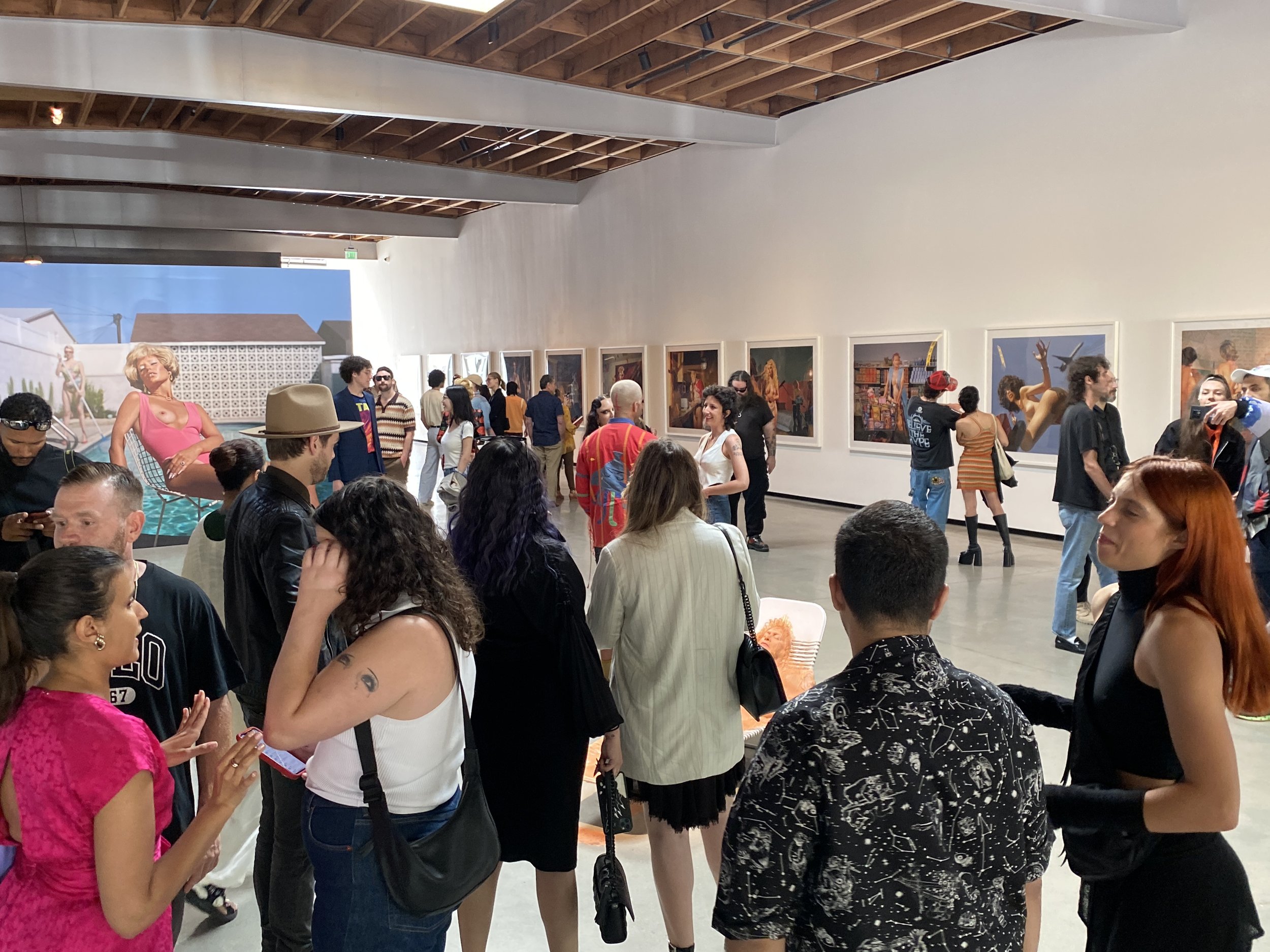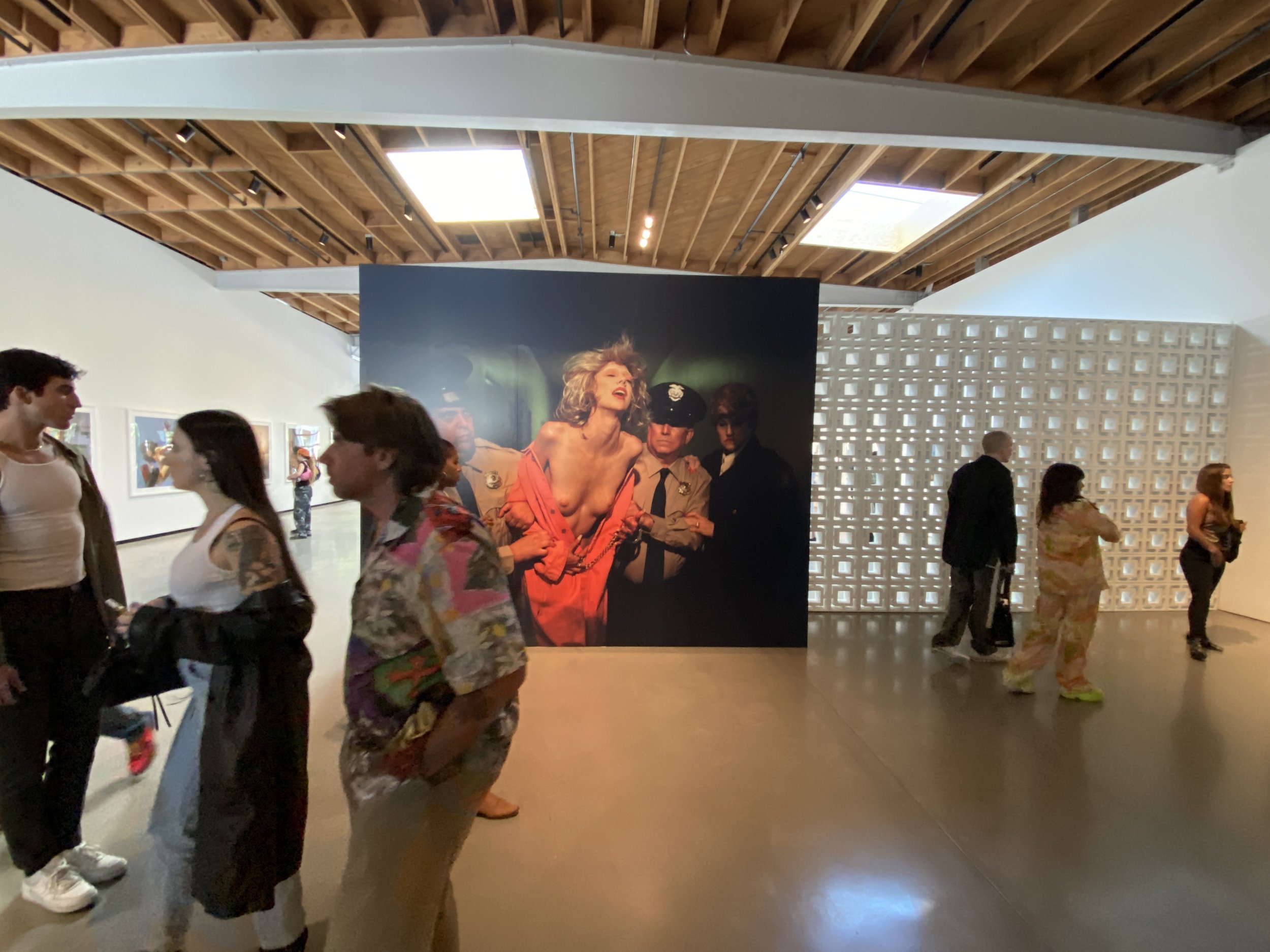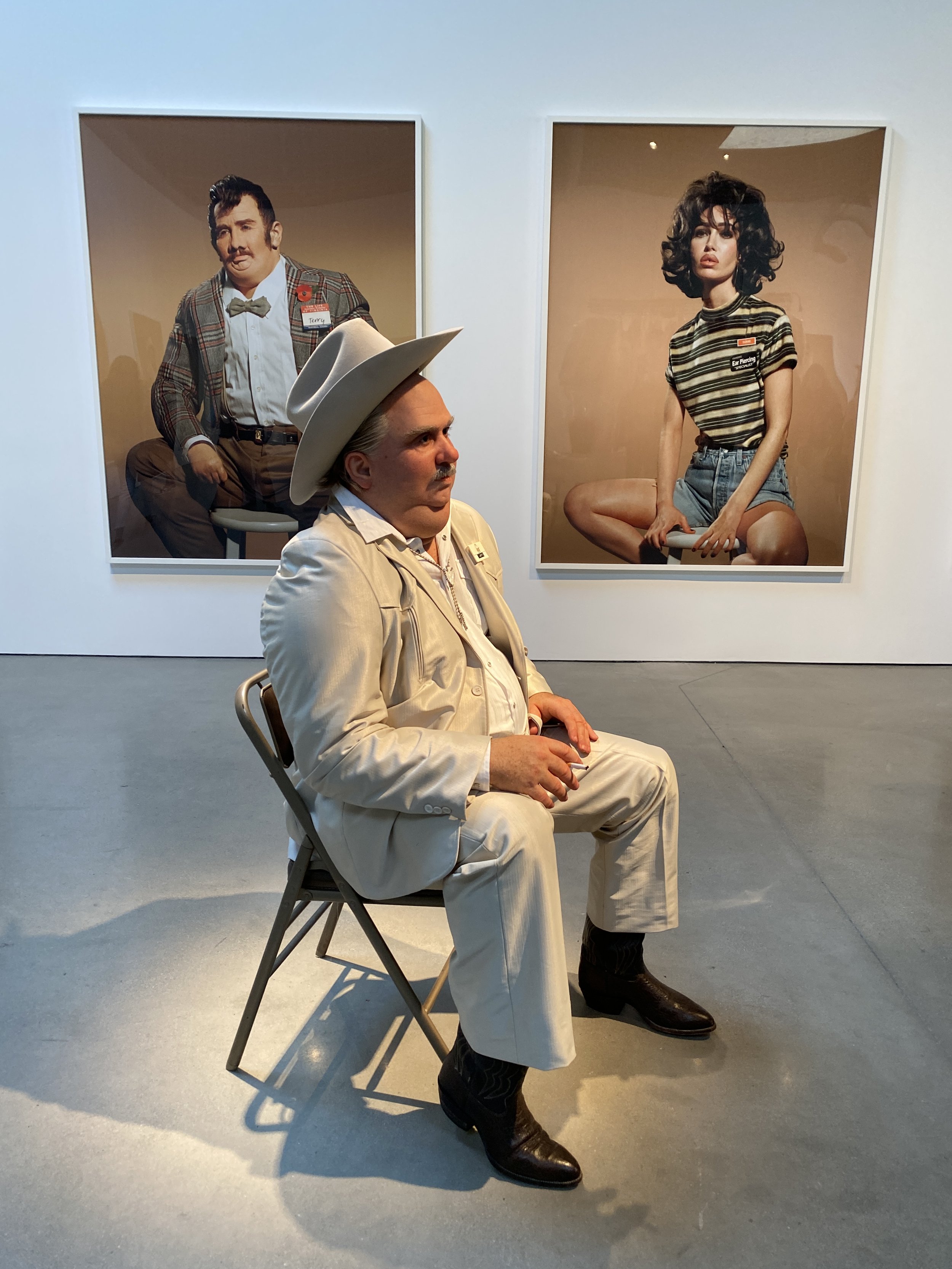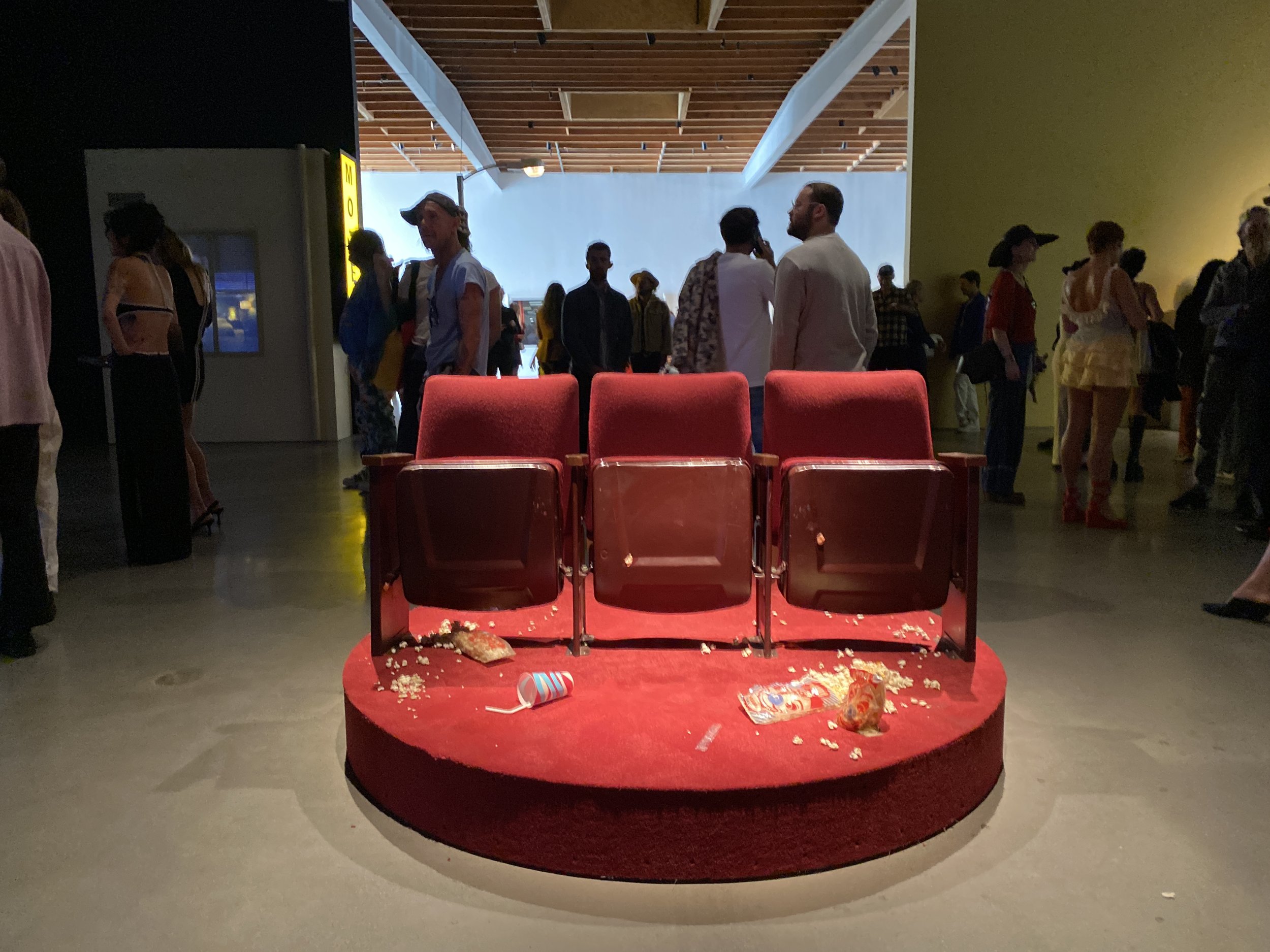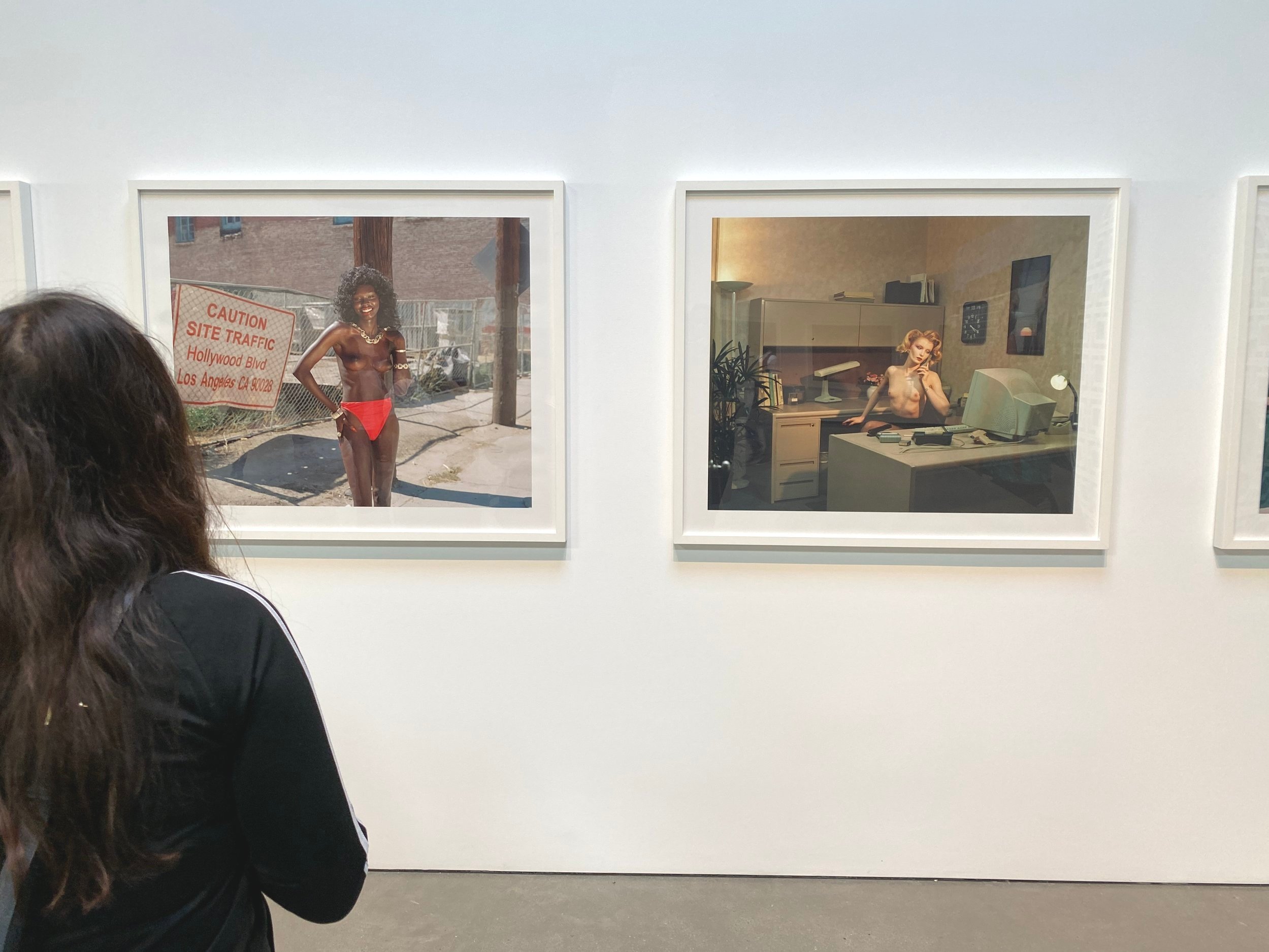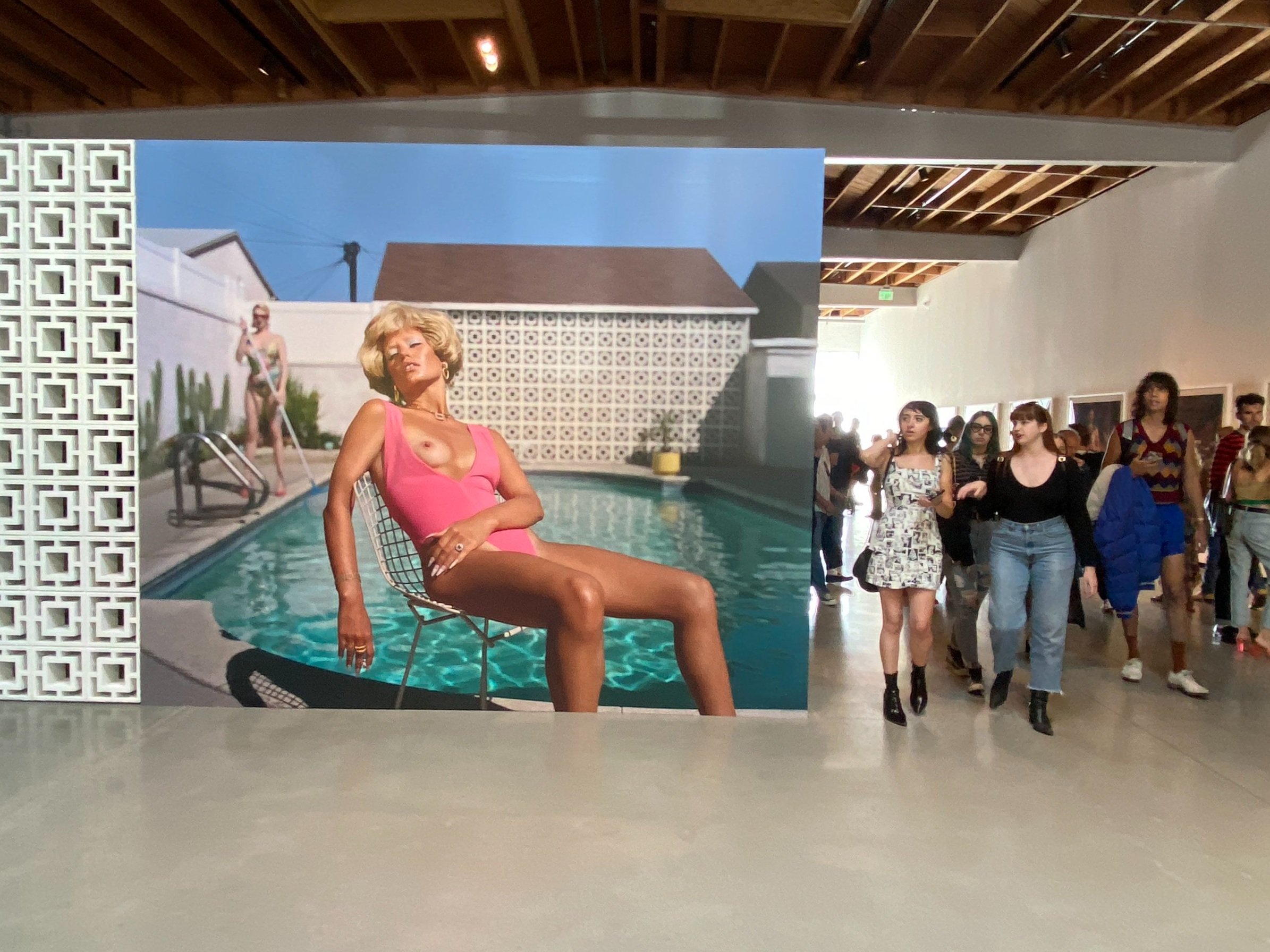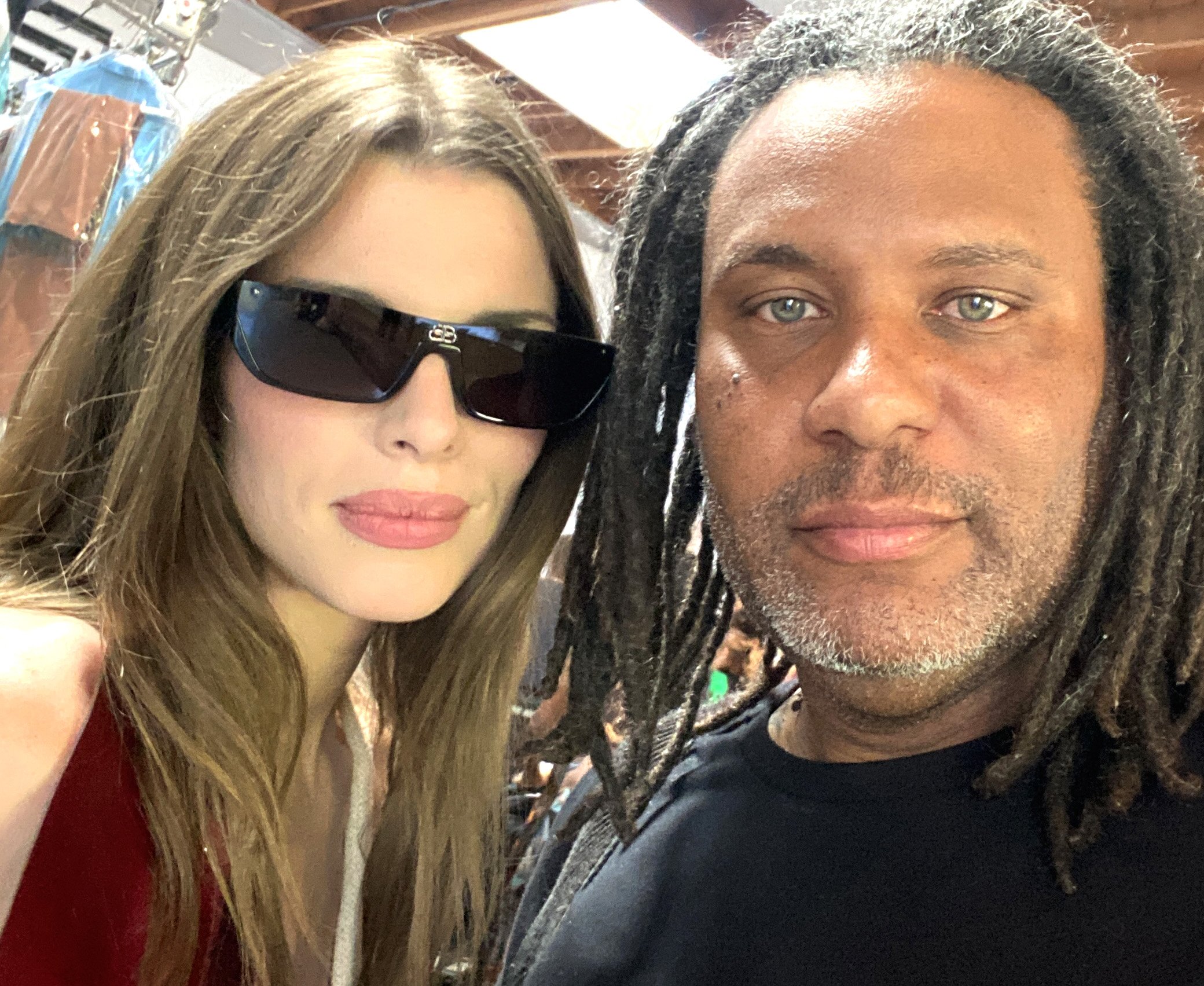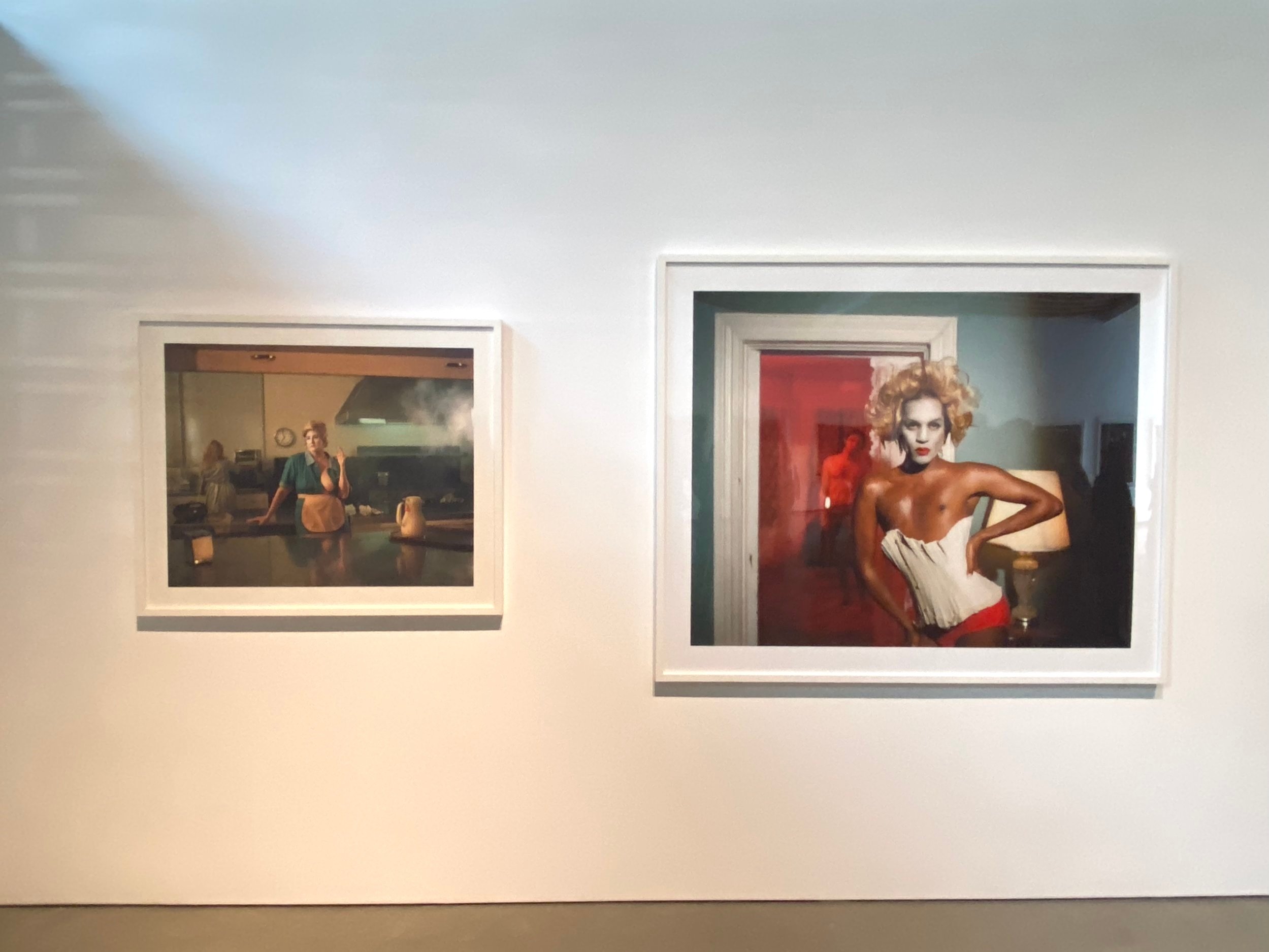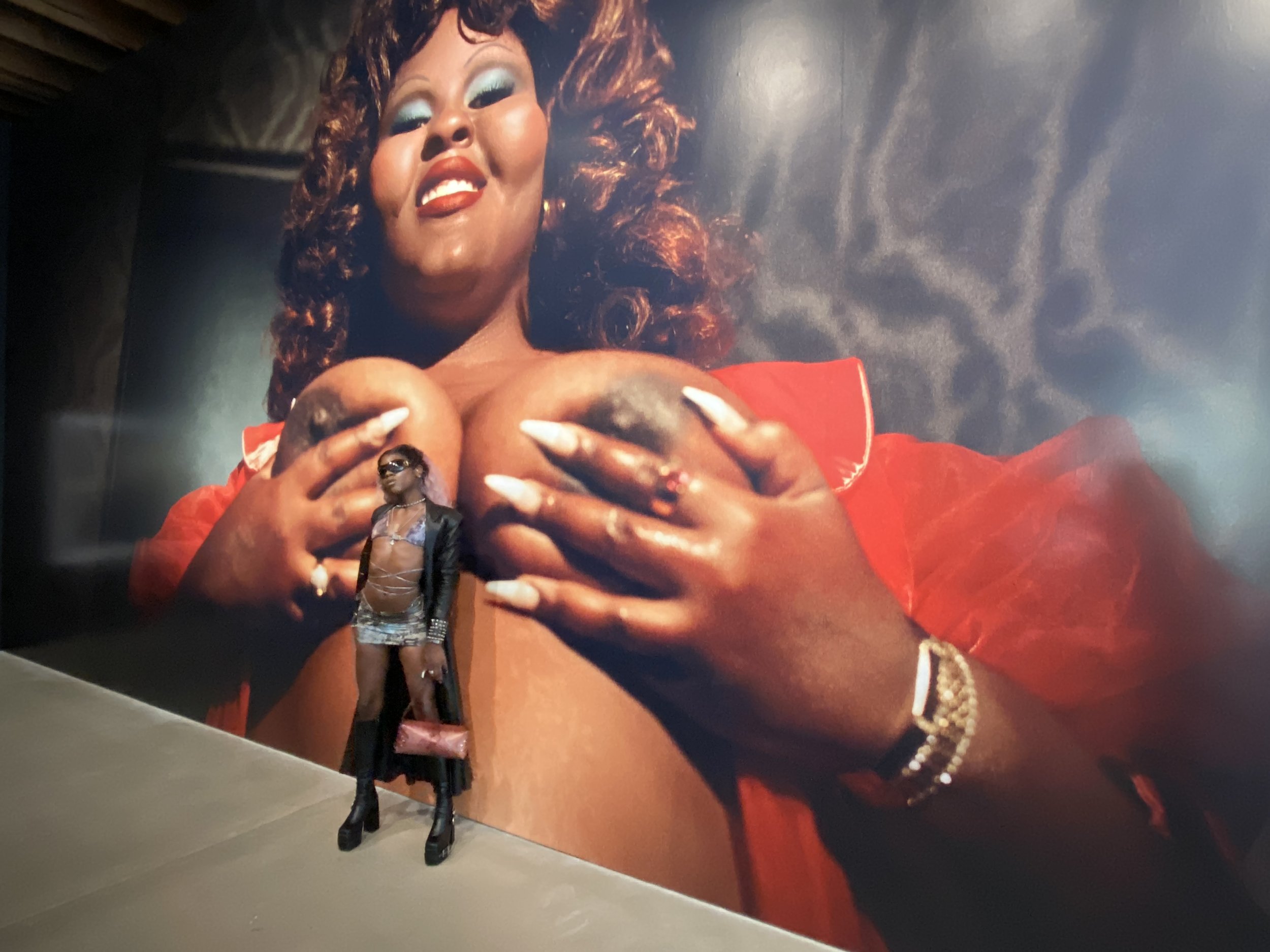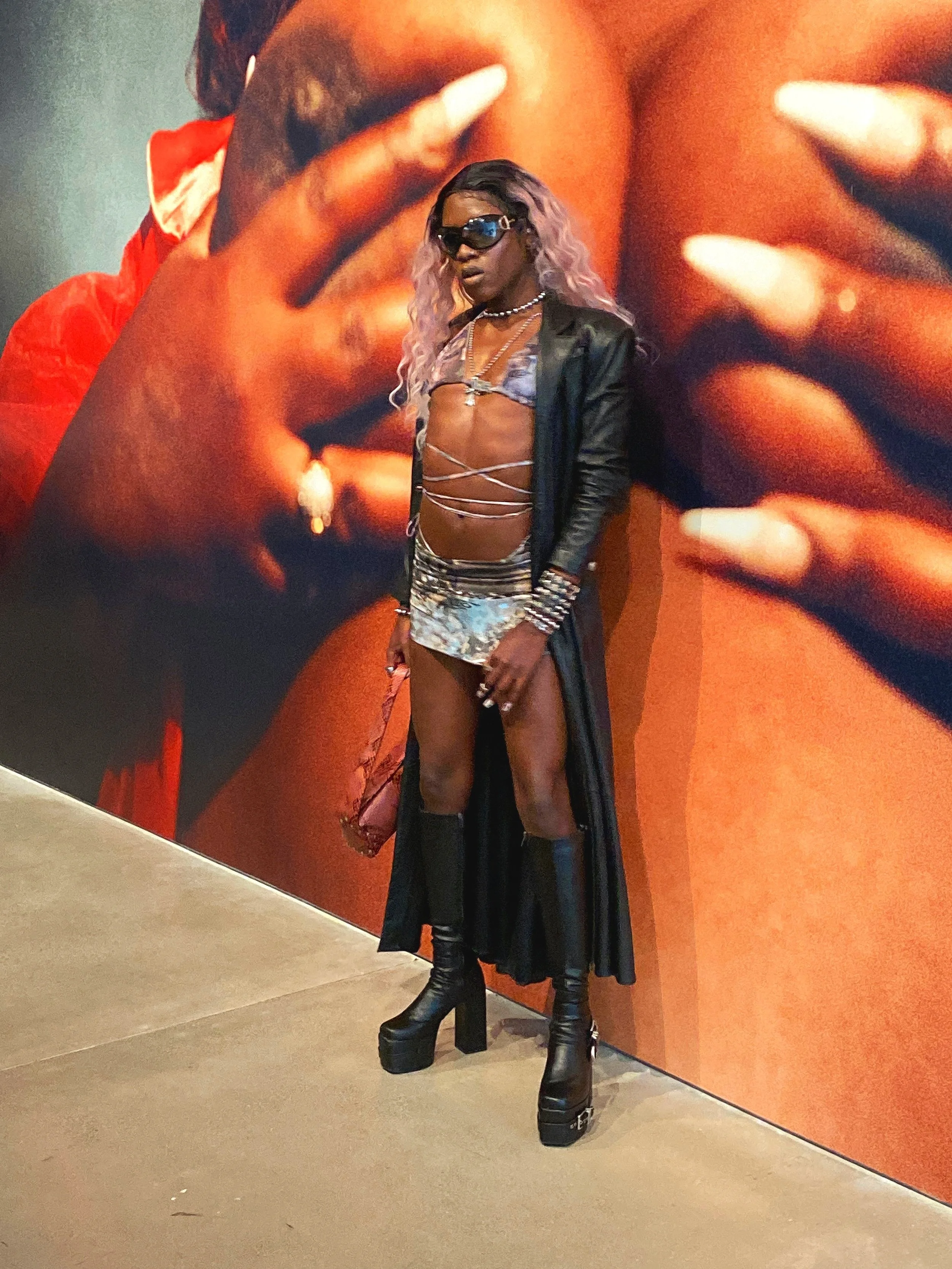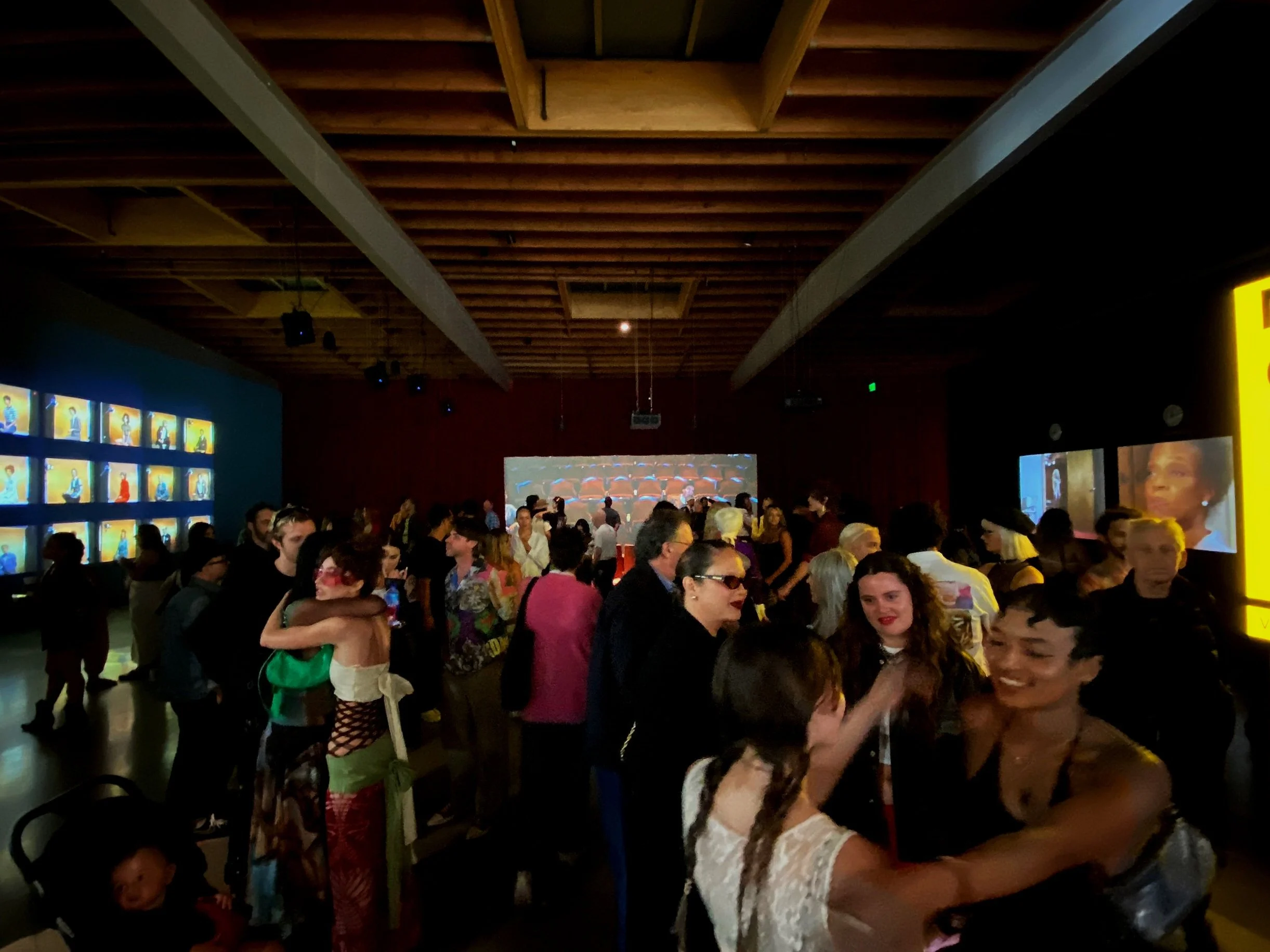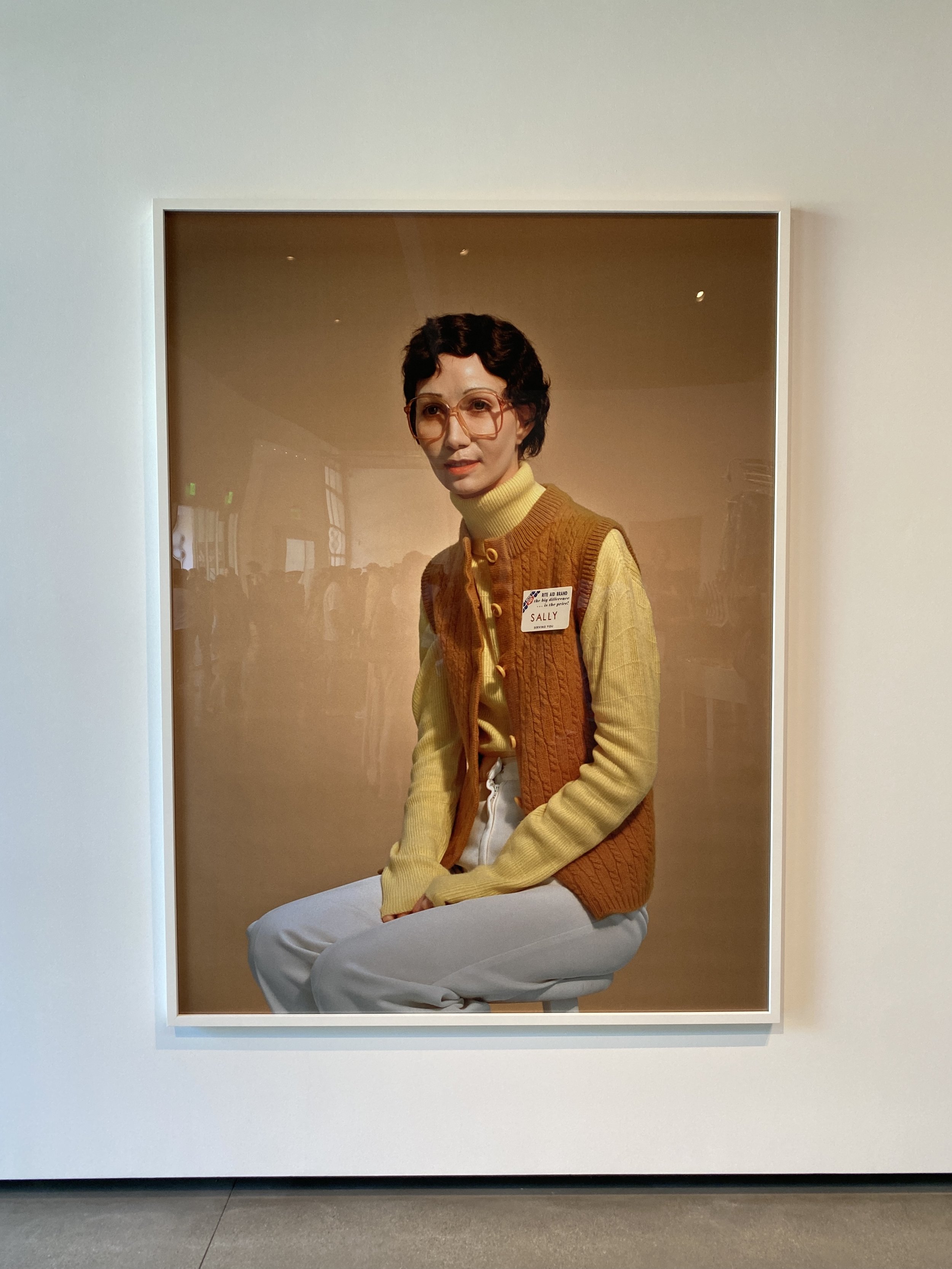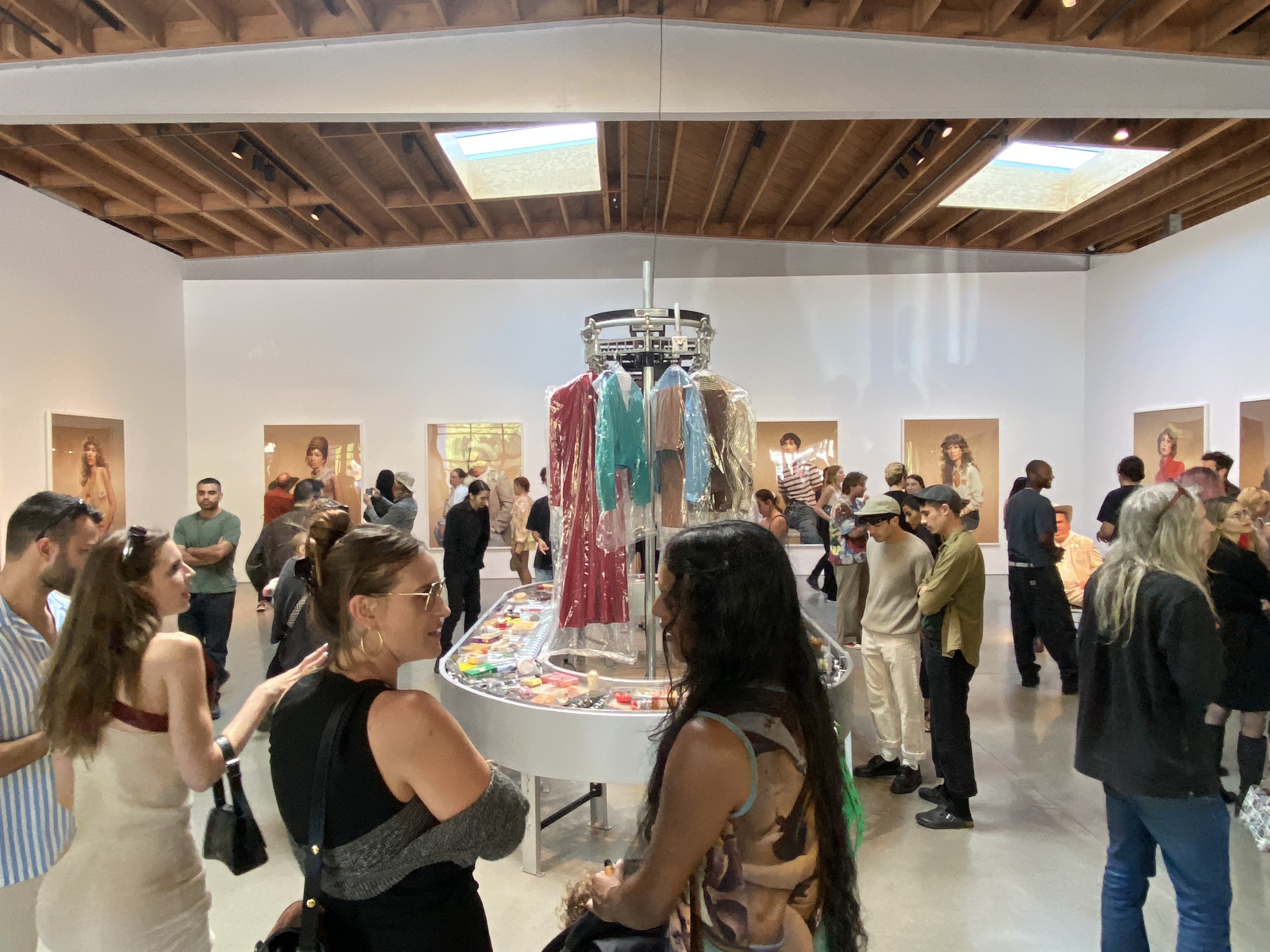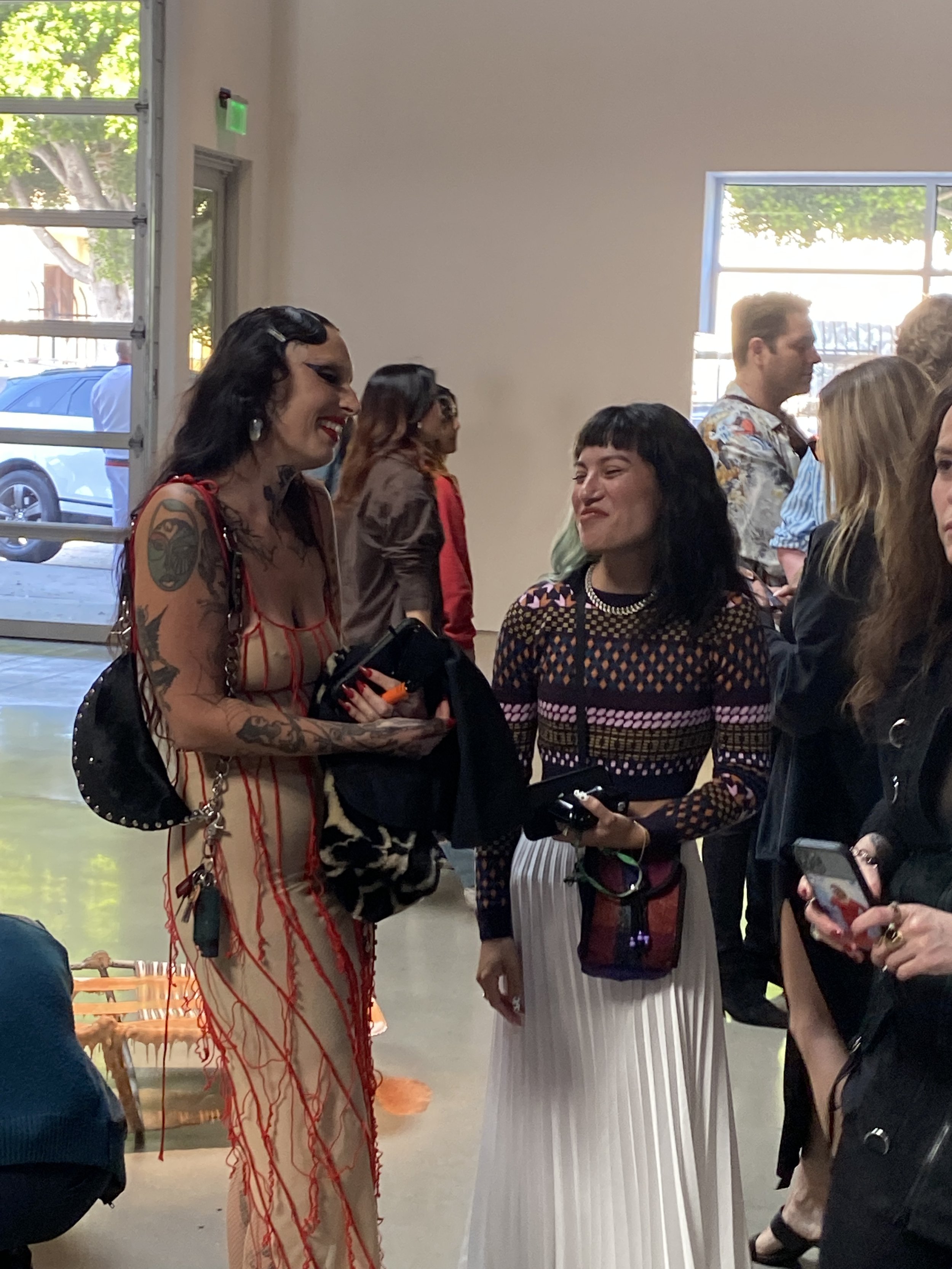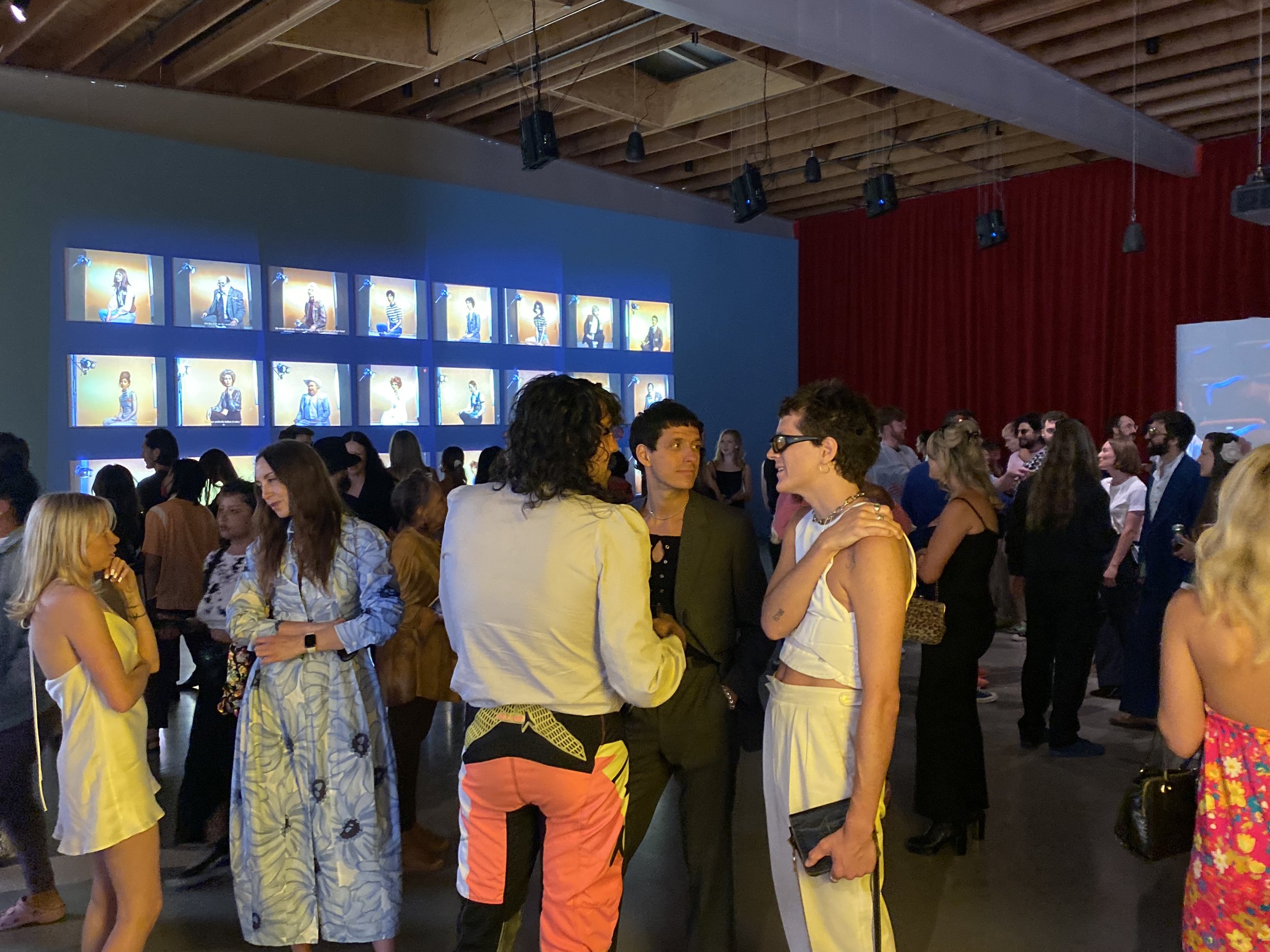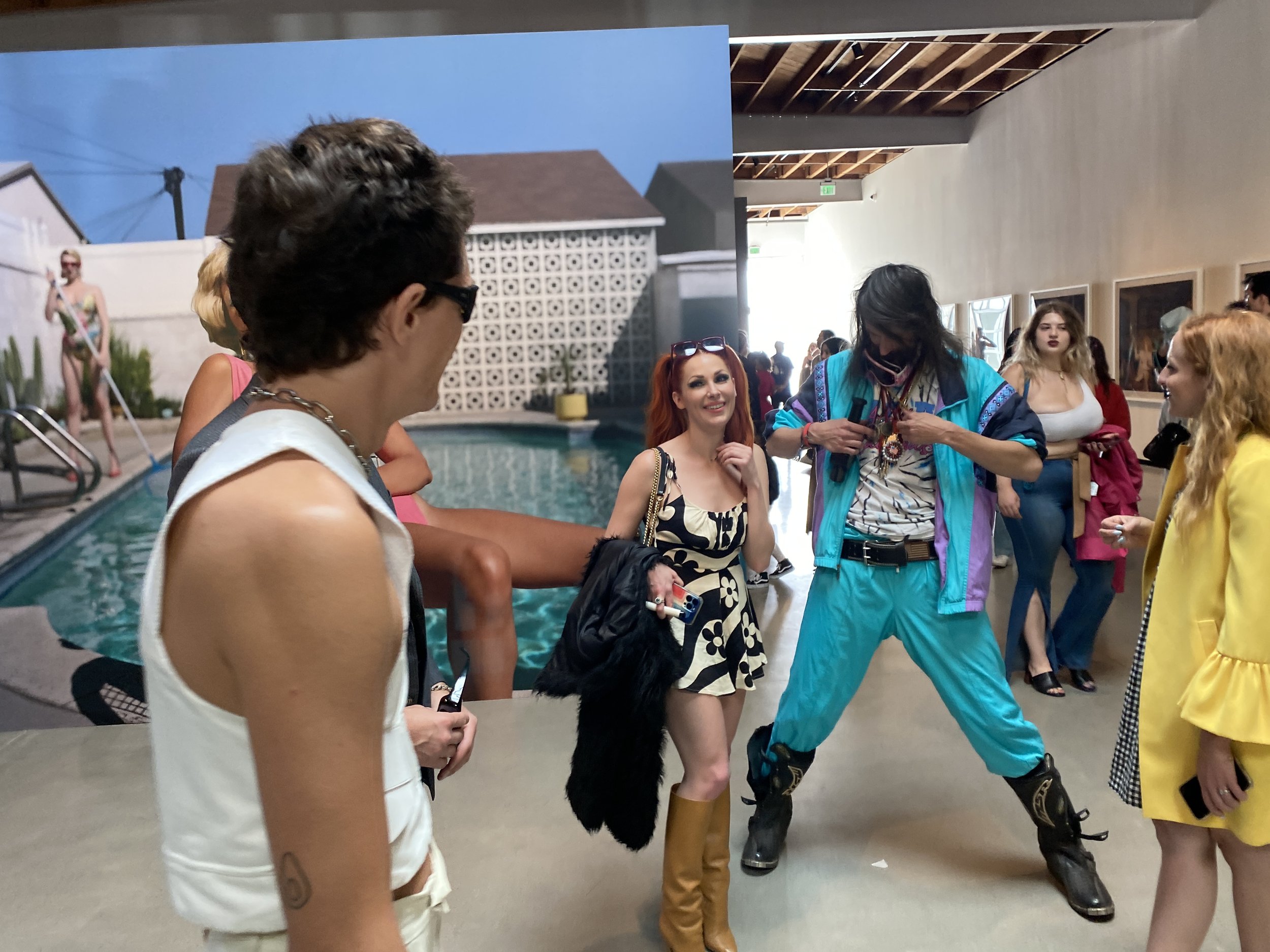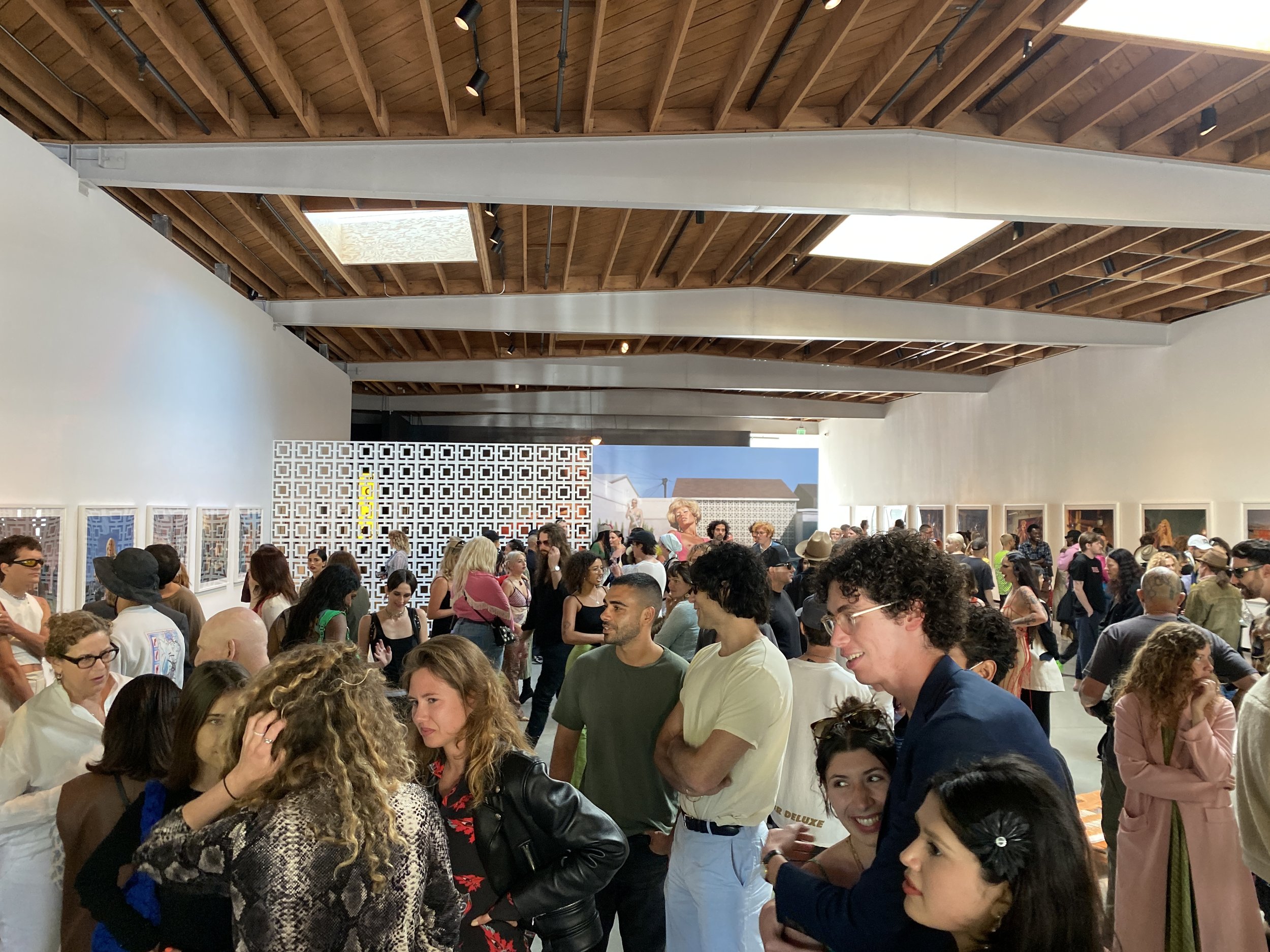Published 8:00 Am PST
“I think what sticks with me is when my dad immigrated from Japan to L.A., he thought it was such a beautiful city, a city unlike any other in the world. It’s very unique. We got a lot of nature surrounding us, the mountains, the ocean, the valleys, and the desert. Maybe like an hour drive out of L.A. you’re in nature and I’m just super proud to be a native Angeleno. I love this place and I want to represent it right because when I look good, L.A. is going to look good, and when L.A. looks good, the world is going to look good,” he related it to his emotional ties to the city. Throughout the show, his paintings represent a hometown story with conflict and connection.
In his monumental Game of Drones (GOD), a vulnerable samurai is confronted by a large white dragon drawn to him through a portal in the sky. Next to the aristocratic warrior is his surrendered drone controller, a gadget he has used far too much, a symbol of his desire for power. This painting is a warning, an image about humanity getting ahead of itself. Set against the backdrop of California’s Sierra Nevada mountains, painted in gold leaf to remind of the gold dug out for fortune, with corporate logos re-appropriated to show the impact of capitalism, and all covered with tags from many of Fujita’s close friends and fellow L.A. graffiti artists, it’s a story about twisted morality. The tags cross out the businesses, street symbols revolting against corporate greed in the community. In Japanese mythology, the dragon is summoned to answer one’s fate, here the creature scares the samurai, warning of his selfish behavior during a time the world needs empathy. “It can definitely be relative to what we had seen in our country during the pandemic, when our rulers weren’t doing their job, like they didn’t know what to do. The world turned upside down. Everybody was feeling it, but I think in our country we saw the true colors come out,” Fujita explained.


